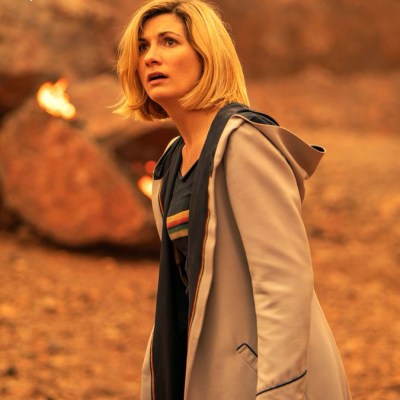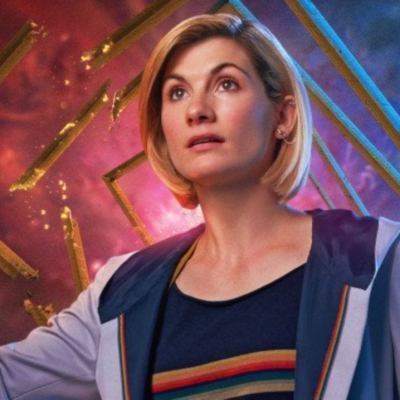Doctor Who: Ranking Every Single Companion Departure
The Doctor’s companions all have to go sometime… but some go better than others. From brutal exits to moving goodbyes, here are the highs and lows of Doctor Who's on-screen companion exits

Graham and Ryan have left Doctor Who, and it was sad/joyous/on telly (delete as applicable), but where do their departures rank on the all-time list?
The question of “Who counts as a companion?” is a tricky one. Overall it’s an ad hoc combination of different criteria, with allowances made for the exceptions that are intended to fulfil the companion role on a one-off basis. The ranking system is based on whether the departure makes sense for that character, how well it’s built up to, and what it says about Doctor Who in a larger sense. The article only covers TV stories because I value what remains of my sanity.
That’s all the exposition. Please enjoy this non-linear history of production compromises.
47. Peri
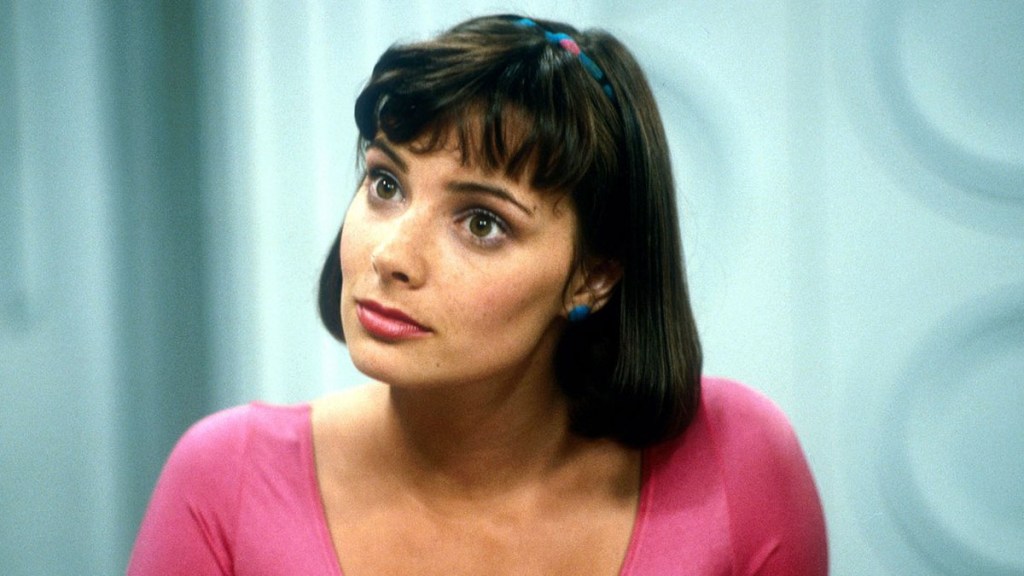
Peri spends almost her entire time on Doctor Who being miserable, scared and under threat (even Big Finish doing a timey-wimey farce with Peri has abuse as a plot point), but there’s no compassionate release for her. Her mind is erased so her body can host another. She dies scared and alone, and it’s unlikely the Doctor could have saved her. While this is horrible, it could function, very bluntly, as an indictment of the Doctor and his treatment of Peri, but then it is revealed that this didn’t happen.
Peri is instead married with a pink love-heart around the flashback (the Matrix is corny AF apparently). This is because producer John Nathan-Turner changed his mind about killing Peri after they’d filmed her death.
On one hand: yay, someone not dying. On the other: she only goes to a slightly better place, and when companions return from the dead it tends to require some cost to the Doctor. Here, any previous suggestion that the Doctor mistreated his companion is abandoned. Peri’s happy ending, rather than death, is that the Doctor abandons her without explanation and her new husband is an angry warlord who doesn’t seem the type to understand PTSD.
46. Leela

Producer Graeme Williams hoped that Louise Jameson would stay on in the role of Leela, despite Jameson insisting that she was leaving, and so didn’t write the character out. Leela was a warrior, intelligent but steeped in tribal superstition, and the investment in making a potentially problematic character work in her earlier stories gave way to more generic writing, hence Jameson’s departure. At the end of ‘Invasion of Time’ Leela abruptly announces that she wants to marry the Captain of the Time Lords’ Guards.
To borrow a term from critical theory: this is total f****** dogs***.
Jameson was happy for the character to be killed off but instead she ended up married on Gallifrey. We never see her again. It’s a lazy piece of writing; disrespectful to the actress, the character and the viewer.
45. Dodo
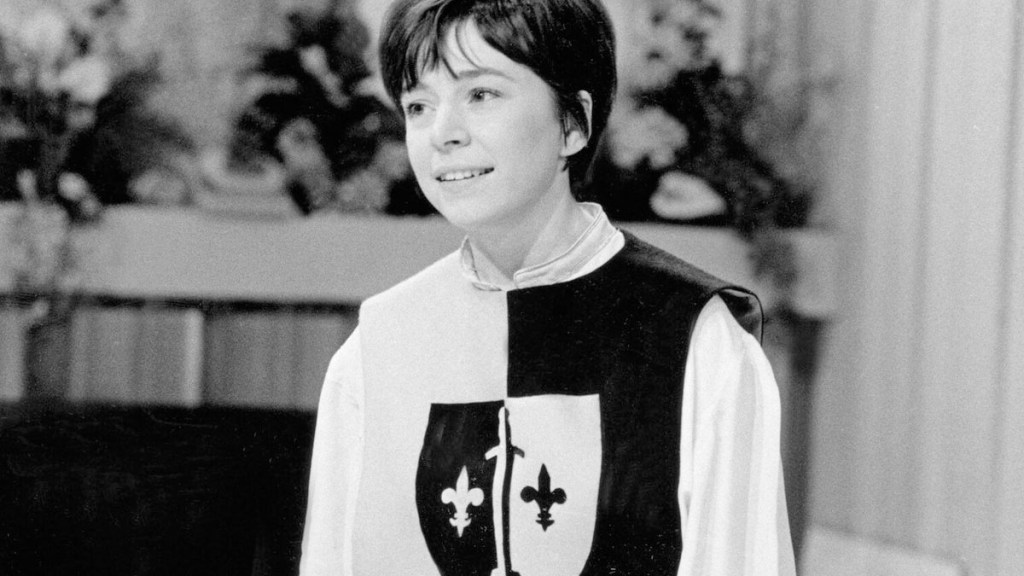
Poor Dodo never really stood a chance. Originally intended to be from Sixteenth Century France, producer John Wiles and script editor Donald Tosh remembered that previous historical companions had been deemed unworkable and so another was probably a bad idea. Instead, Dodo started off Cockney until the BBC told the Doctor Who team that she had to speak in Received Pronunciation English.
A happy-go-lucky soul, the production team never warmed to their creation and Dodo is sent away to recover from hypnosis halfway through ‘The War Machines’, and we never see her again. Polly tells the Doctor “she’d like to stay here in London and sends you her love” two episodes after her final appearance.
44. Sergeant Benton & 43. Harry Sullivan
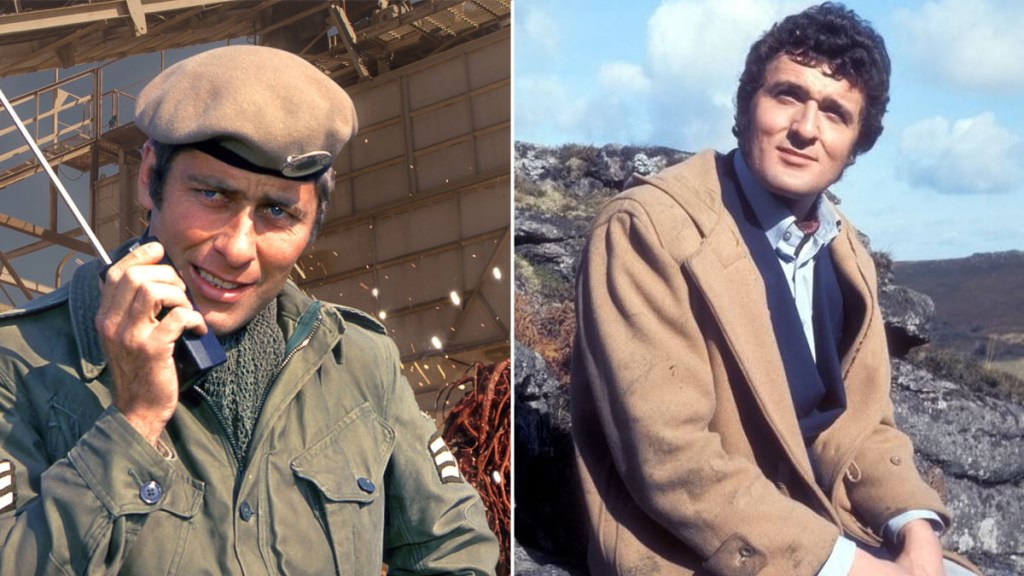
Sergeant Benton and Harry Sullivan appear in ‘The Android Invasion’ as if it’s just another story for them. Benton last appears as an android duplicate and Harry says nothing during the final fight scene. They never appear again. For all of the strengths of early Tom Baker stories, emotional resonance is not one of them.
42. Katarina
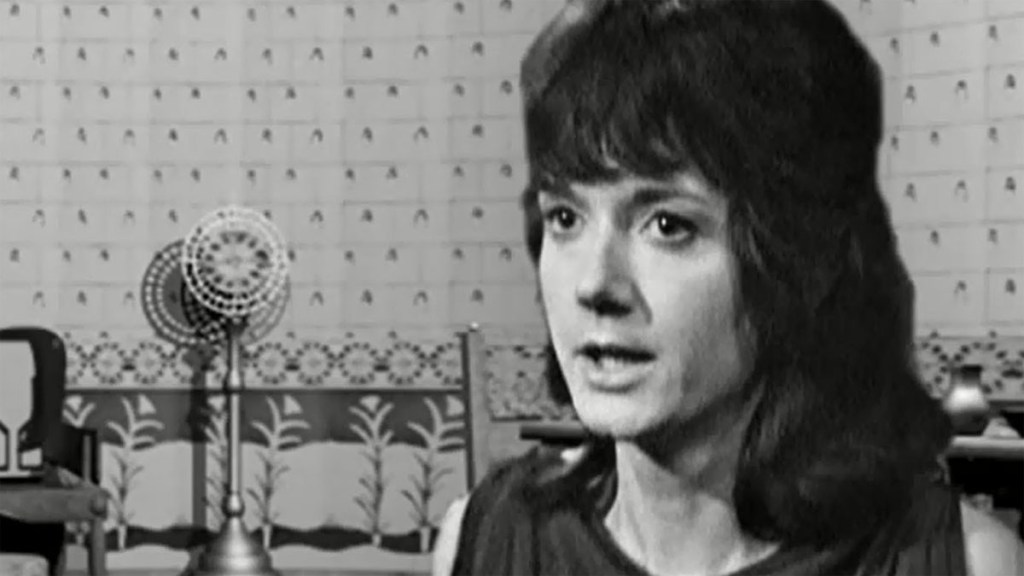
Katarina was brought in for the final episode of ‘The Myth Makers’as a replacement for Vicki, and then sacrificed herself in ‘The Dalek Master Plan’. The production team had decided that, as a Trojan handmaiden, Katarina’s ignorance of modern and future technology meant she’d be hard to write for. This makes sense to an extent, except that her death involves her activating an airlock. So we have a production team creating a problem but solving it by suggesting that it wasn’t insurmountable anyway. As the Doctor says at the end of ‘Dalek Master Plan’: “What a waste.”
41. Sara Kingdom
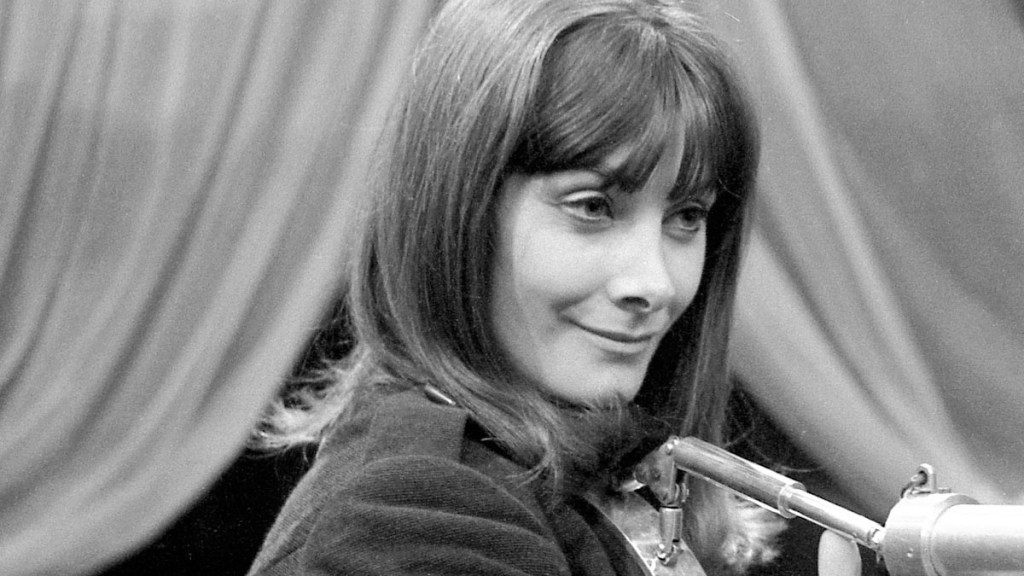
Having killed off Katarina, the production team needed a new companion to fill her role for the rest of ‘The Dalek Master Plan’, so Terry Nation wrote in a Space Security Agent inspired by The Avengers’ Cathy Gale. After killing her own brother, believing him to be a traitor, Sara Kingdom joined the Doctor and Steven’s attempts to stop the Daleks from using the Time Destructor. Ultimately Sara is killed by the device, ageing to death. As the planet around them turns to dust, Sara’s body does likewise and is blown away by the wind.
It’s a horrific fate, to the extent that cuts were made to the sequence. Sara Kingdom was always designed as a short-term companion, and actor Jean Marsh wasn’t interested in joining the show permanently.
Companion deaths aren’t intrinsically a bad idea, it’s just that they can’t be regular, expected events or else the show becomes ‘Come with me for an adventure, you’ll probably die. Yes I’m a psychopath’. They’re usually short-term solutions to mistakes but the momentum of the Doctor’s failures here could have gone somewhere. Instead, the show casually resets itself to the status quo on a flimsy pretext, so these deaths mean little. If Doctor Who doesn’t care about their impact, why should the audience?
40. Liz Shaw
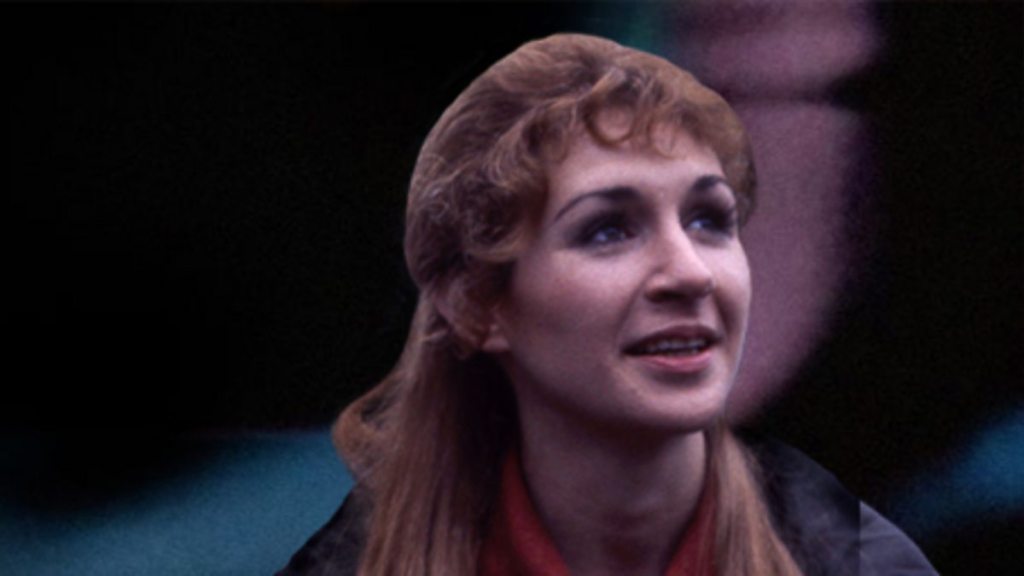
New producer Barry Letts had decided that Liz Shaw was too intelligent to be a Doctor Who companion, and the interpretation most generous to Letts here is that Liz wanted to continue her own work rather than be drafted by UNIT as an assistant. While I hope this was the intention, it’s still a move that implies a reductive take on the role of the companion (that they’re a function rather than a character) and reinforces the paternalism of the Doctor: fatherly, yes, but also dominating and controlling.
39. Polly and Ben
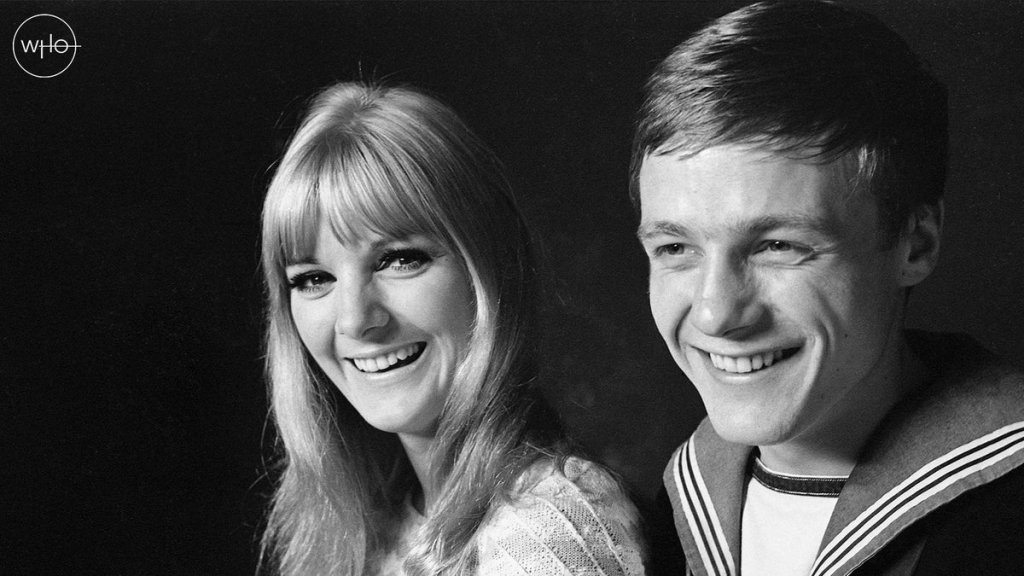
Polly and Ben follow the Doctor into the TARDIS in ‘The War Machines’ and discover at the end of ‘The Faceless Ones’ that they’re back in London just when they left. They ask the Doctor his permission to leave, saying they’ll stay if he needs them. The Doctor is sad to see them go but doesn’t stand in their way, although he does suggest that Ben can go back to the Navy to become an admiral and Polly can… look after Ben.
It’s a pat, patronising little scene that comes and goes suddenly, especially as Polly and Ben haven’t actually been in the story since Episode Two. Polly and Ben leave and the Doctor and Jamie immediately start talking about their next adventure. The production team had decided the characters weren’t working, and the best you can say is that they were given slightly more ceremony than Dodo.
38. Astrid Peth

The thing about Astrid’s death is that it’s impossible to type ‘She pushes a mugging gold-toothed businessman down a ravine using a fork-lift truck (in slow motion)’ in a way that conveys any sense of pathos. People talk about Andrew Cartmel’s time on Doctor Who influencing Russell T. Davies’ approach, and while they’re wrong (RTD would have written it like that anyway, even if the Cartmel era didn’t exist, but fair play to Cartmel for being on that wavelength) few ever mention ‘Time and the Rani’as an influence. Russell T. Davies’ writing sometimes feels like he’s gleefully trying to combine the tone of Sylvester-McCoy-playing-the-spoons-on-Kate-O’Mara-while-Kate-O’Mara-is-dressed-as-Bonnie-Langford, with the opening ten minutes of Up. Sometimes he actually does it! This was not one of those times.
37. Adric
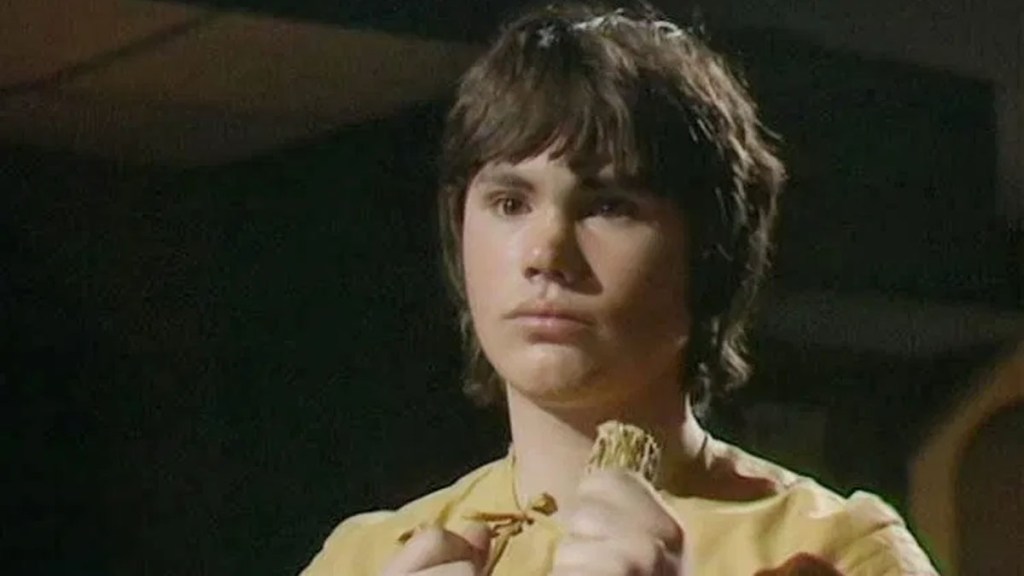
The Davison companions tend to get good leaving stories that are apparently based on some unbroadcast version of Doctor Who in which they’re completely different people.
So on one hand obviously the death of Adric was a memorable piece of television that affected people deeply on broadcast, but on the other hand it’s a glorified jump-scare. Adric is on board a space freighter about to crash onto prehistoric Earth and cause the extinction of the dinosaurs. He doesn’t know about that last bit, so instead of getting into the escape pod he attempts to solve a logic puzzle that is stopping him from controlling the ship. His bravery in going back to the ship doesn’t achieve anything. In fact if he had succeeded it would have changed history dramatically, so he dooms himself for nothing.
It’s brutal, in comparison with earlier companion deaths the emotional fallout is poorly handled, and it doesn’t pay off anything we’ve seen earlier. Consider Adric’s character up until his final story – a reckless know-it-all who keeps joining the bad guys – and it doesn’t join up with his final story and fate. The initial setup of Adric feeling like an outsider is swiftly resolved rather than used as motivation for his death. There’s no redemption, just a cruel and unlucky moment of bravery for the sake of a semblance of drama.
36. Amy and Rory

Steven Moffat’s first companion departures are not his best work. Initially Amy and Rory broke a trend: companions leaving as they get married off. Only then Moffat wrote a poorly handled pregnancy storyline where the characters’ emotional responses felt implausible, and unlike his softening of the Twelfth Doctor’s character the attempts to address this were bumpy. Then for Amy and Rory’s departure he has River Song, the Doctor’s wife who he rarely meets in chronological order, tell them that he doesn’t like endings and “never let him see you age”.
This reminds you that the Doctor isn’t only manipulative and scheming on an epic scale, and the fact that he tries to convince Amy not to try to go after Rory continues is more in-your-face selfishness (another example of the Seventh Doctor era being on similar wavelengths to the post-2005 show), rather than feeling like a genuine concern for her safety.
Now, I love Doctor Who, I like that the hero is flawed but that they try to be hopeful (and Moffat addresses this successfully elsewhere). The issues with giving the Doctor flaws are whether they’re dealbreakers for people watching, and whether or not they’re deliberately done. This feels like it’s aiming for a commentary on the Doctor but goes too far, and I can understand people finding this hard to watch.
As with many of Moffat’s ideas, just because it didn’t fully work here doesn’t mean it won’t crop up again later.
35. Kamelion
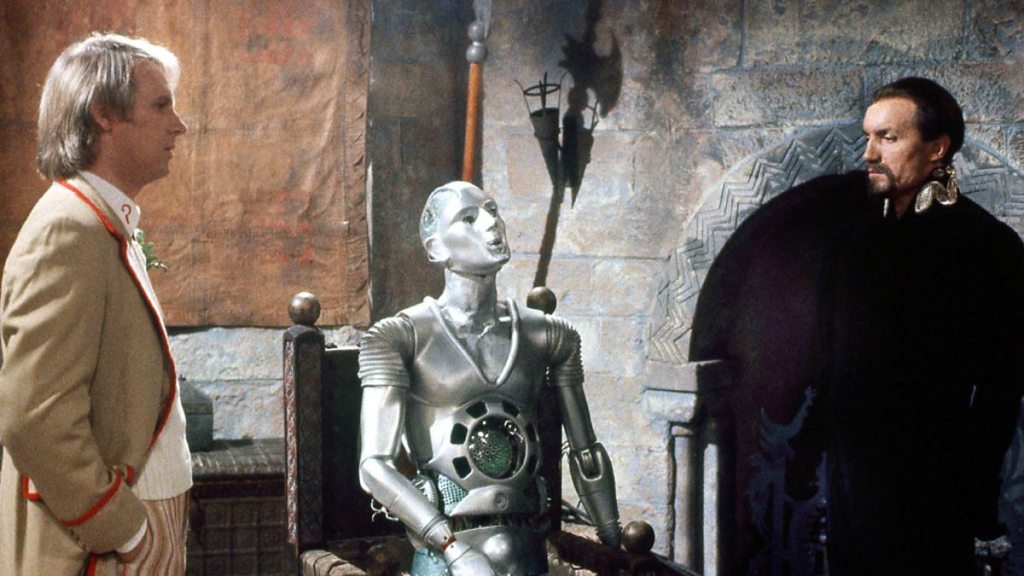
There are a lot of cases of a companion leaving because the production team can’t make them work, but this is a bit on the nose.
Like Adric’s death, Kamelion begging the Doctor to destroy him would have much more impact if it followed through more substantially on previous stories. Unfortunately Kamelion’s character was that of a shape-shifting robot where the robot prop didn’t work, and rather than have him just assume a human guise they simply never wrote him back into the series until his final story. As a result, there’s no real relationship in play when the Doctor grants Kamelion’s wish. On the other hand the robot’s plight is consistent with what little we know of him.
While it’s never fun to watch someone beg for death, it’s more of a testament to Gerald Flood’s acting and Peter Grimwade’s script for ‘Planet of Fire’ that his death scene works.
34. Donna Noble
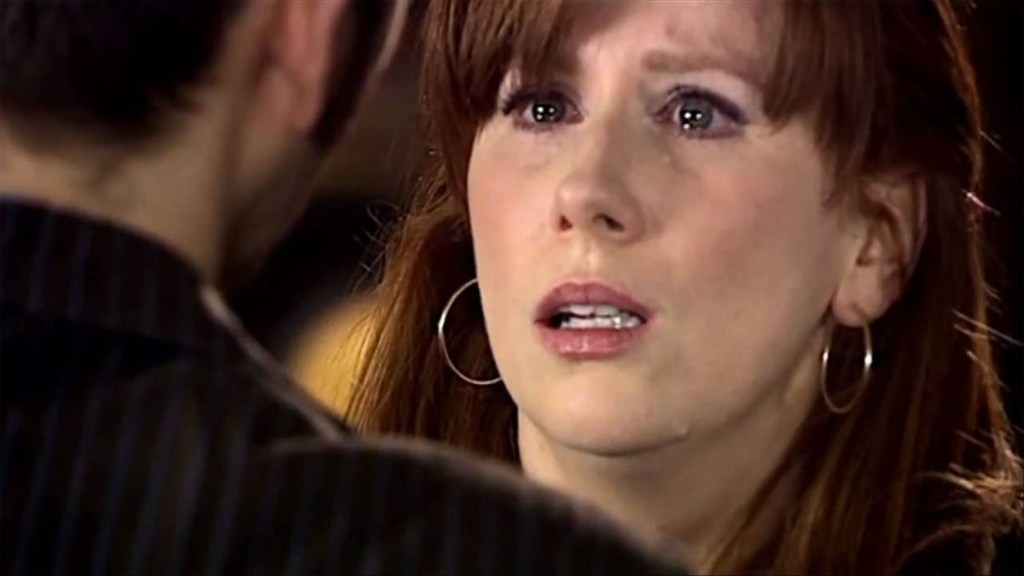
Everyone remembers the sequence in ‘Journey’s End’ where the companions pilot the TARDIS and drag the Earth back to the right place while “Song for Freedom” builds and Freema Agyeman looks directly at the camera. It’s joyous. It’s huge. It’s wonderful.
The 10 minutes that follow are bleak.
Rose gets her compromised happy ending, then it’s the fate of Donna. She gets given some of the Doctor’s mind, becomes even more brilliant, but then comes the turn: this will kill her. She can’t be this brilliant, she can’t have any more adventures with the Doctor. As she shouts “No” the Doctor wipes her memories of their time together.
EDIT (10/01/21). To clarify why I’m so down on this one: It’s not just that Donna says no and the Doctor does it anyway, though that is a major factor. It’s not just the repeated trend in companion departures prior to Donna where their departure has to involve something traumatic, and the cruelty of giving Donna the life she had prior to ‘Journey’s End’ with the Doctor and then taking away that and her newfound abilities (so Martha’s departure stands out as being the companion asserting herself and not being a victim).
Another important question is when did the Doctor know he would have to wipe Donna’s mind? Was it as soon as he knew about the Doctor-Donna? Certainly he’s not surprised when Donna starts glitching. The Doctor watches his friend save the day knowing it’s going to kill her. All the way through Song for Freedom the Doctor knows what is going to happen. It’s so cold.
That’s why this gets contrasted with Clara’s departure so much, where the question of consent is raised along with the Doctor’s behaviour. And it’s hard not to see Clara’s fate as a rejection of the assumption that Death = Good Drama, and a rejection of the idea that someone flying close to the sun deserves to fall. And that’s a version of the show I find more satisfying to watch.
33. Lady Christina de Souza
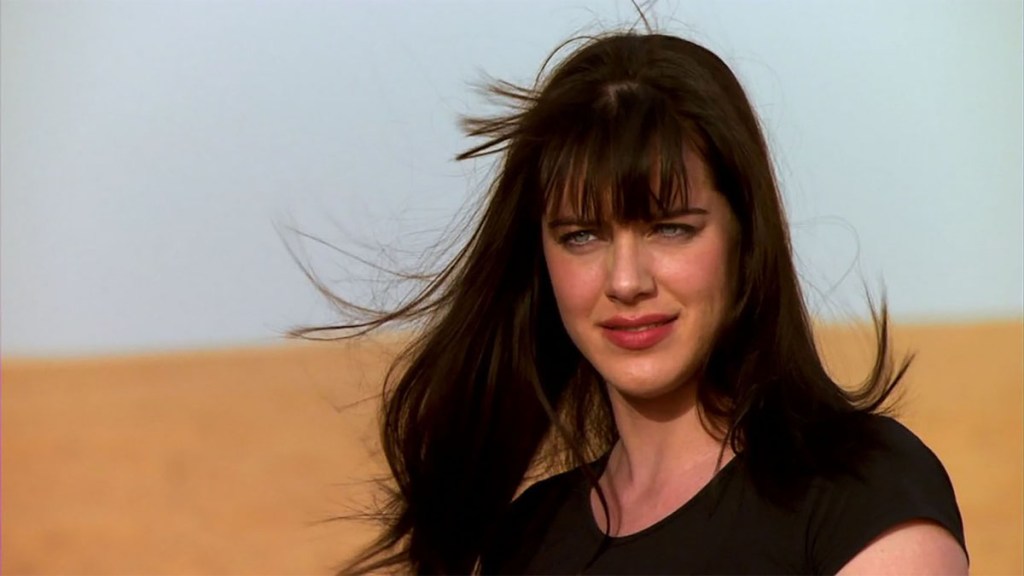
Flying off in a knackered double-decker bus to further adventures is a really good way to go. This would rank higher if it weren’t for the fact that the character is hard to warm to. Unlike Donna Noble’s first appearance in the show, Christina’s role in ‘Planet of the Dead’ doesn’t allow for much pathos or depth, and the character never returned on television to show these. As it is we’re left with a bored member of the aristocracy flying away in some very British iconography, but without the promise of a Barbara Wright figure puncturing their ego.
32. Mel
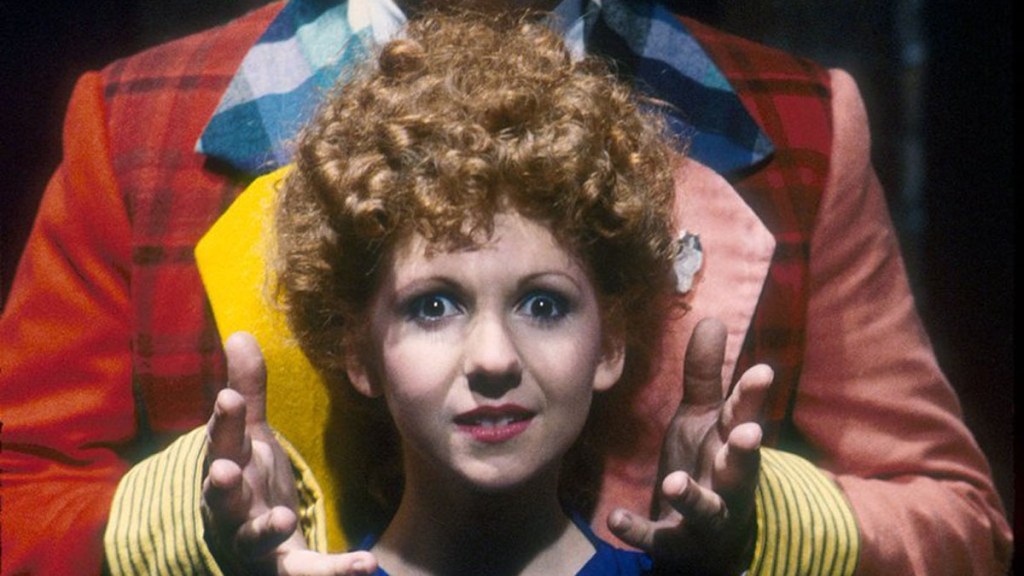
It’s worth stressing that any critique of Mel as a character has to firmly centre on the inadequacy of her creation. She was devised as a computer programmer from Pease Pottage who was into keep-fit, and that’s her entire character. It seems churlish to criticise Bonnie Langford for playing the part as “Bonnie Langford in Doctor Who” because there was nothing else for her to go on.
Mel leaves the series because she decides to travel with Glitz, a mercenary. Does this follow on logically from her character? All we know about Mel is that she’s wholesome and enthusiastic and seems extremely unlikely to go off with a violent intergalactic Del Boy.
However, she gets another leaving scene that would be wonderful if it reflected a recognisable character. We get a sense of the Doctor’s affection for Mel and a series of wonderful melancholy moments: the Doctor shutting the conversation down so he doesn’t have to deal with human emotion, his obvious sadness at another friend leaving because that’s what his life is. Mel’s last line about putting a message in a bottle and throwing it into space (“It’ll reach you. In time”) is brilliant.
This scene bears comparison with Sarah Jane’s leaving scene, specifically because it wasn’t in the original script but the lead actor insisted it be added in its place. It was the scene Sylvester McCoy read when he auditioned for the role.
31. Adam Mitchell
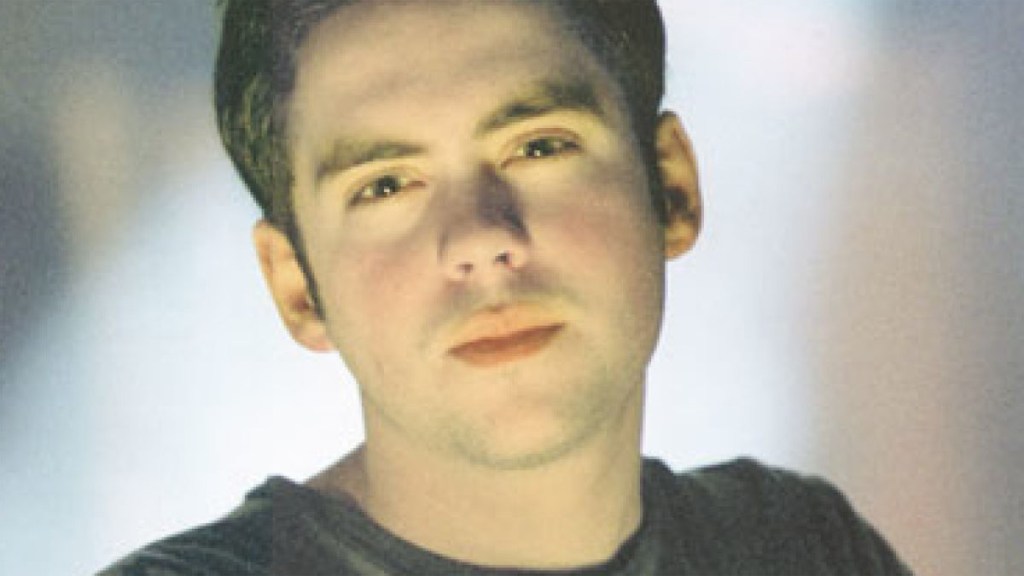
Adam joins at the end of ‘Dalek’ and leaves at the end of ‘The Long Game’, the next story, and has a piece of future technology in his forehead so whenever someone clicks their fingers a little door opens up and you can see his brain.
Yes, in the grand scheme of things this is unfair. Other companions have done stupid things and the Doctor has helped them. The Brigadier flat out murdered people. But Adam was deliberately rubbish and this is reminder that the Ninth Doctor is a damaged man who lashes out. When he says ‘I only take the best’ it seems more like an excuse to get rid of Adam than anything factual, but then the Doctor starts acting like it’s true.
30. Vicki
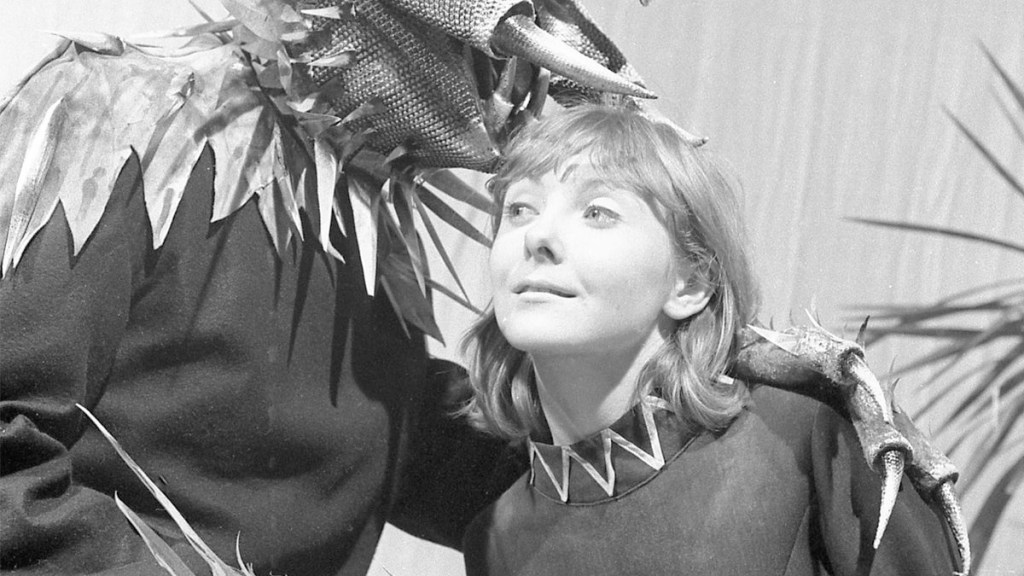
Vicki left the series because producer John Wiles heard actress Maureen O’Brien complain about her dialogue in ‘Galaxy 4’, so decided to let her go when her contract expired one story later. This led to her being paired off with Troilus at the end of ‘The Myth Makers’, set during the fall of Troy. A late decision requiring rewrites, this is quite an enigmatic fate. We see Vicki fleeing Troy after its fall with Troilus, the Doctor hopeful that she’s safe, but we never see her again. Given the TARDIS’ translation gifts, one imagines she suddenly has to learn Luwian.
29. Nyssa
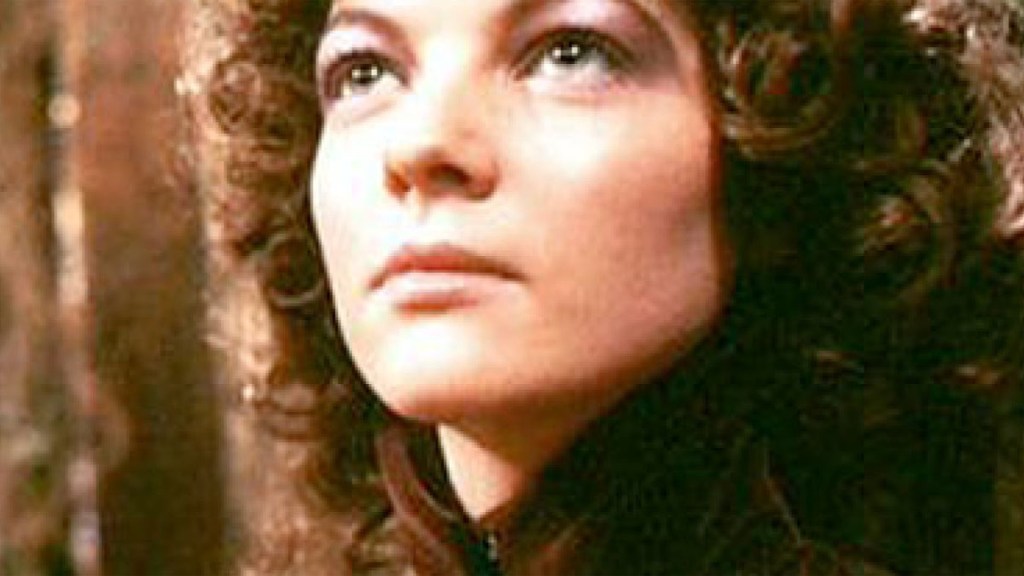
Nyssa, a scientist/fairy princess mash-up whose entire family and planet was destroyed by the Master (who took over her father’s body) could be a great character. Her innately calm, generous and curious nature contrasted with all the horrors of her past is full of potential, and indeed her choice to stay behind at what is essentially a space leper colony is consistent with this. However, because none of this is ever seriously addressed in the show, the potential pathos of her leaving is greatly reduced. As is often the case we have to make do with a sad leaving scene, where Tegan flat out says to her “You’ll die here” to which she replies “Not easily. Like you I’m indestructible.”
As with Adric’s death, there’s the vague shape of something weighty and dramatic there but without the substance to fill it. John Nathan-Turner hated soaps, but actually using their techniques might have given us a stronger sense of Nyssa and Tegan’s relationship, meaning the audience wasn’t left to fill the gaps.
28. Jackson Lake

Considering during the course of ‘The Next Doctor’ Jackson Lake is in a fugue state, has a breakdown, remembers the death of his wife and the abduction of his child… he seems quite well adjusted by the end of the story. Reunited with his son and suggesting a Christmas dinner honouring the people they’ve lost, Lake seems to be in a better place than the Doctor.
27. Steven Taylor
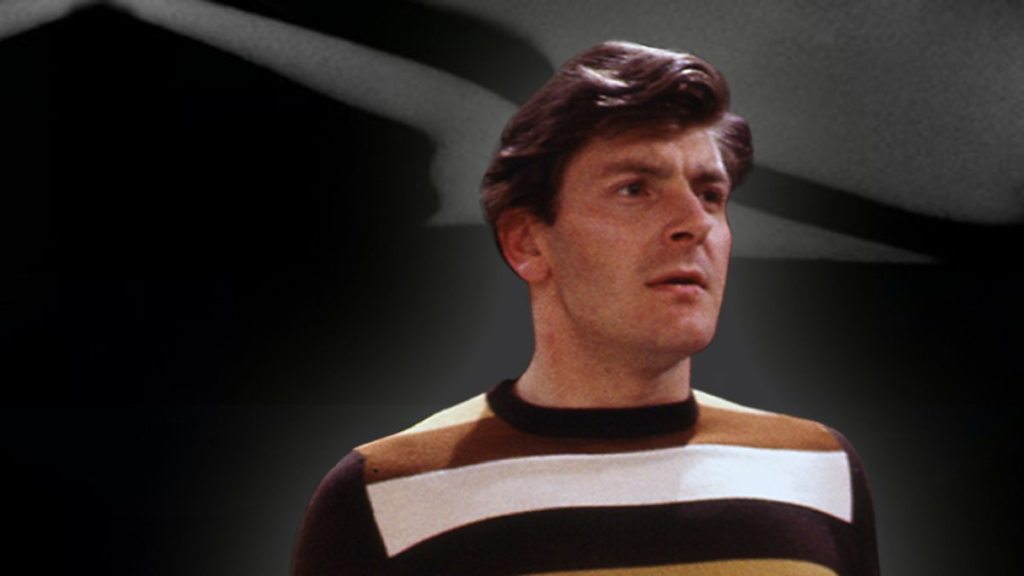
Steven went through a lot: Wounded in Troy, witnessing the deaths of Katarina, Sara, and the Huguenots of Paris. Initially conceived as a replacement for Ian, meaning he took on most of the action sequences, he leaves in ‘The Savages’ to mediate between two societal factions after a story designed as a more cerebral alternative to biffing. It’s a good place to leave for a character who had stagnated (which, as you can see, happened a lot).
26. Graham and 25. Ryan
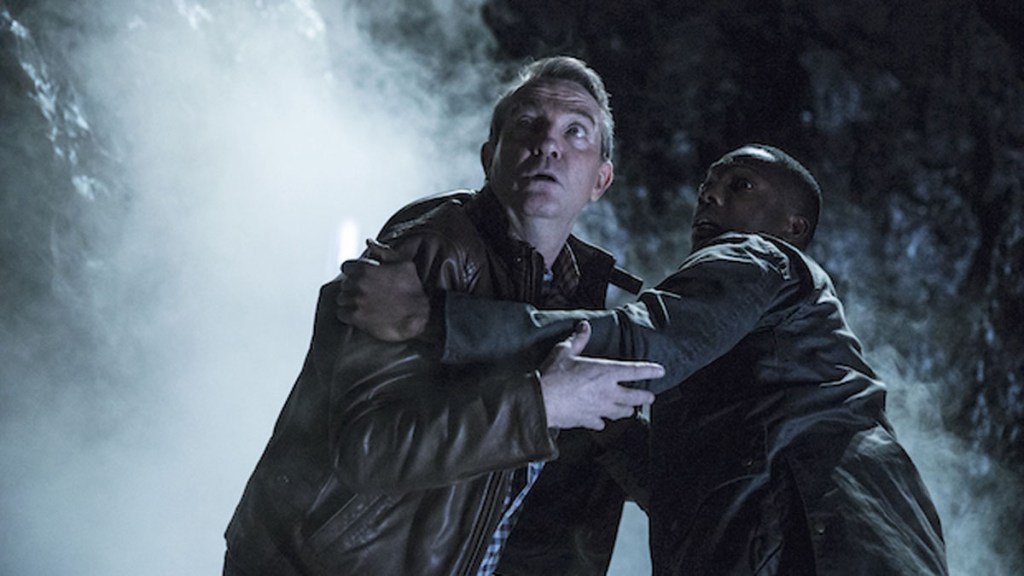
Ryan didn’t get killed or converted by Cybermen, so that’s progress. What did happen is that the Doctor accidentally returned to Sheffield ten months late. Yaz is hurt and Ryan returns more comfortably to his old life. Graham is also there.
The returning character of Robertson, an American tycoon with interests in becoming President functions as both a Doctor Who villain and a Donald Trump analogue (in a story universe containing Donald Trump) and this version of Doctor Who isn’t currently capable of dealing with that. Ryan watches Robertson on telly, unpunished by the Doctor and resolves to do something. This is a good reason to go, especially given the concerns of the Chibnall era (at its best focussing on the impact on well-drawn individuals, at its worst expositing over abstractions and sketches).
Graham decides that he will stay with his grandson after Ryan’s sudden announcement. This pays off their development in Series 11, where they had the main character arc of that series.
So far so good, but we also see Graham and Ryan deciding that, actually no, they’re not going to deal with real world problems, just Doctor Who-style adventures instead. It’s a useful microcosm of the era: good ideas present but not followed through on, being not shown Ryan’s reasons for leaving, and not successfully tethering the characters to either the forced whimsy of Doctor Who or the contemporary societal issues it wants to highlight.
And a final issue, which may be resolved: why is this the break-up of The Fam?
This ending doesn’t preclude the Doctor coming back to visit them in any way. In this respect it’s a classic companion departure: practically speaking actors aren’t always free for a cameo or a return visit (for example William Russell wasn’t ultimately available to play Ian Chesterton for ‘Mawdryn Undead’, so the Brigadier was written into the role of a school teacher instead), which means the Doctor not returning for their friends becomes a feature of the character. So while Ryan and Graham are choosing to leave, rather than being drastically and permanently separated, is the Doctor is still making the decision to cut them out of her life?
24. Mickey Smith
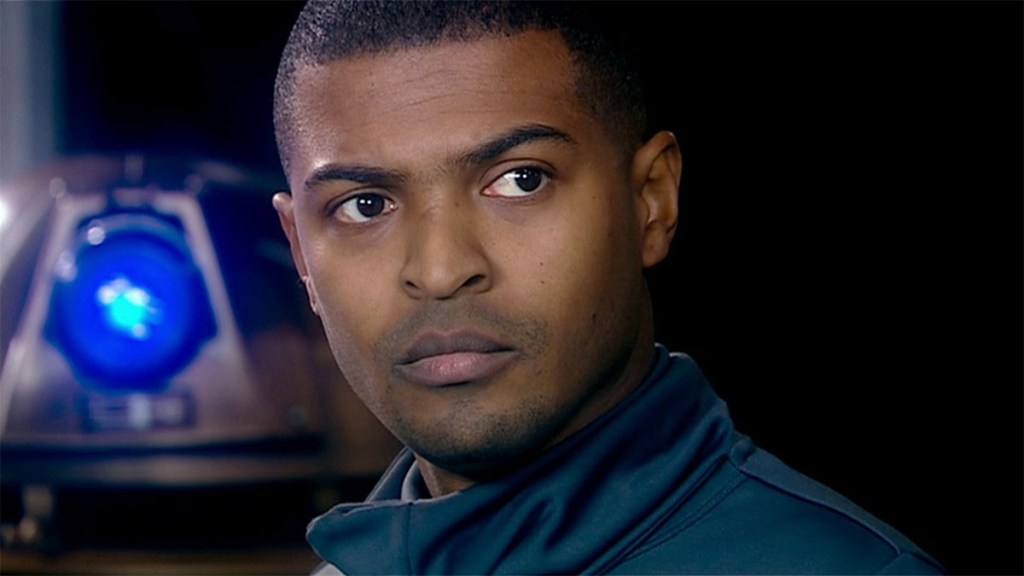
Mickey is given, in ‘The Age of Steel’, a proper old-fashioned companion exit, by which I mean some plot points are introduced at the start of his final story and by the end they’ve caused him to leave. Here it’s based on the Doctor and Rose’s behaviour and Mickey’s worth being dismissed until he does something heroic. He’s finally able to say to Rose that she doesn’t need him anymore and move on. Broad brushstrokes stuff in a busy episode, but it continues the idea that the Doctor makes people better that was emphasised from 2005 onwards.
Sure, he does it by being a bit of a prick here but the point stands.
23. The Brigadier
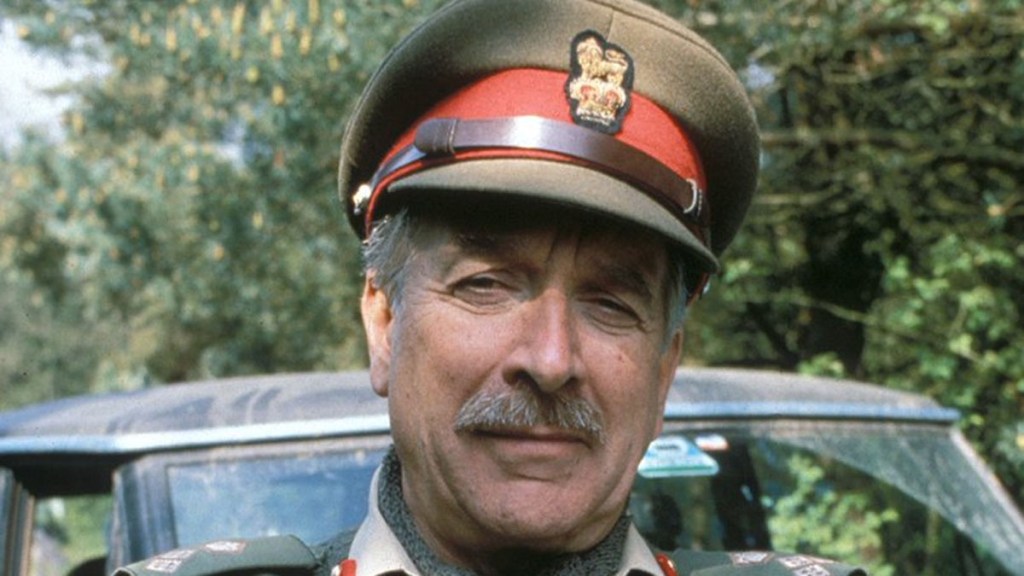
What is the Brigadier’s final story? I’m looking for a story that is written as a final departure, ideally after sustained involvement in the show. For the Brigadier that means ‘Terror of the Zygons’ doesn’t quite work, it wasn’t meant to be his final story (he was unavailable for ‘The Android Invasion’). ‘Battlefield’might have been his final bow, but writer Ben Aaronovitch set up the Brigadier’s death then found he simply couldn’t kill him off. The episode the Brigadier is initially written out of the show in is ‘The Wedding of River Song’ – where the Doctor receives news of his death by phone – and this is swiftly retconned with the divisive Cyber-Brig from ‘Death in Heaven’.
These two were written after Nicholas Courtney’s death, and the first one is used for dramatic weight but is over with too quickly. The latter does show the Brigadier, even in death and converted, saving the life of his daughter and helping the Doctor before going on to possibly eternal life – as seems right and proper – but as it involves the Brigadier’s buried body being reanimated there’s an invasive element connected to a beloved figure. As with many of Steven Moffat’s ideas, just because it didn’t fully work here doesn’t mean it won’t crop up again later.
22. Turlough
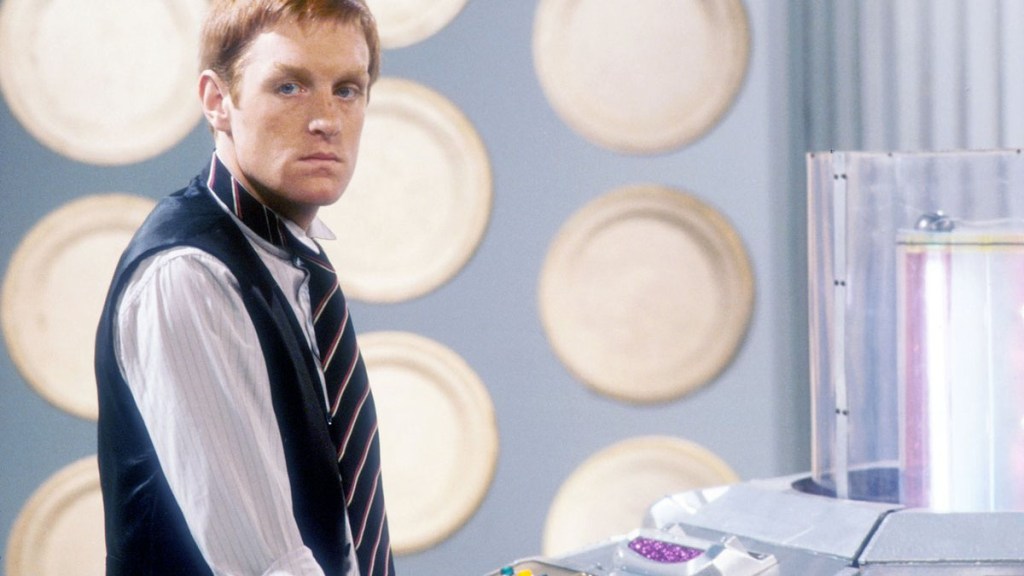
Peter Grimwade deserves credit again. Given the job of writing out Turlough, Kamelion and potentially the Master while also writing in the new companion Peri, Grimwade actually makes the brief for ‘Planet of Fire’ work. Here Turlough realises early on that his home planet is involved, and by involving his family Grimwade makes the stakes personal. Turlough also gets to use his brains here, rather than just wander around with a gun looking scared.
Turlough’s departure is developed through this story, and the farewell scene is a low-key goodbye as he admits that travelling with the Doctor has made him a better person. Again, it doesn’t follow from previous episodes, as Turlough isn’t developed as a character after ‘Enlightenment’, but in the context of this story it works well.
21. Mike Yates
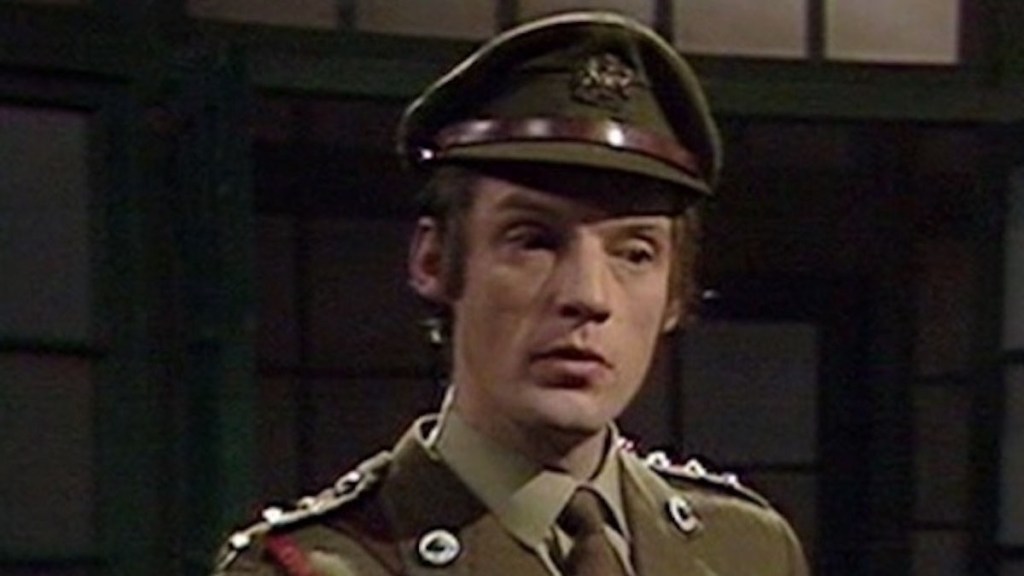
An example of Barry Letts and script editor Terrance Dicks addressing how being a regular Doctor Who character might make you feel, Captain Mike Yates is shaken by his hypnosis when undercover at a petrochemical company and becomes concerned about the environment. He falls in with a plot to reduce overpopulation and restore Earth to a golden age by time scooping dinosaurs into central London, because Doctor Who, and is discharged from UNIT. He goes to a meditation centre to recover, and uncovers a sinister plot – because Doctor Who– and ultimately gets better. Yates gets an arc and closure, especially in comparison to his fellow UNIT soldiers.
20. Nardole
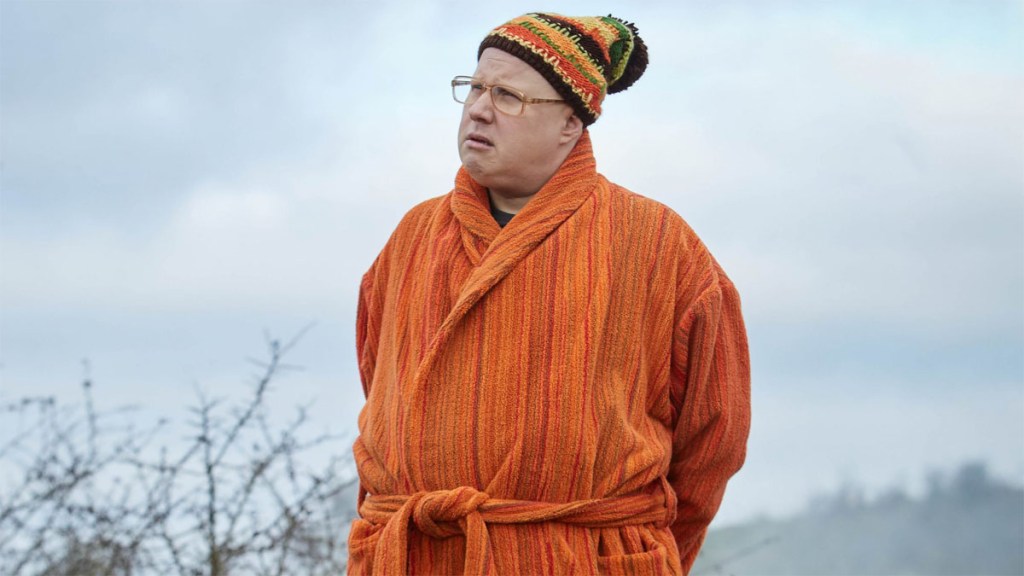
Nardole, chiefly a comic relief character with moments of depth, is entrusted with the task of evading the Cybermen for as long as possible while keeping a group of humans alive (a continuation from his assigned role of monitoring the Doctor). It seems likely they will eventually fall, and though this is de-emphasised to stop an already tragic episode from overloading, it’s quietly harrowing. Adric’s death shook up the children watching, Nardole’s affects the parents: the feeling of being a guardian to children in an uncertain, dangerous world is all too familiar right now.
19. Sarah Jane Smith
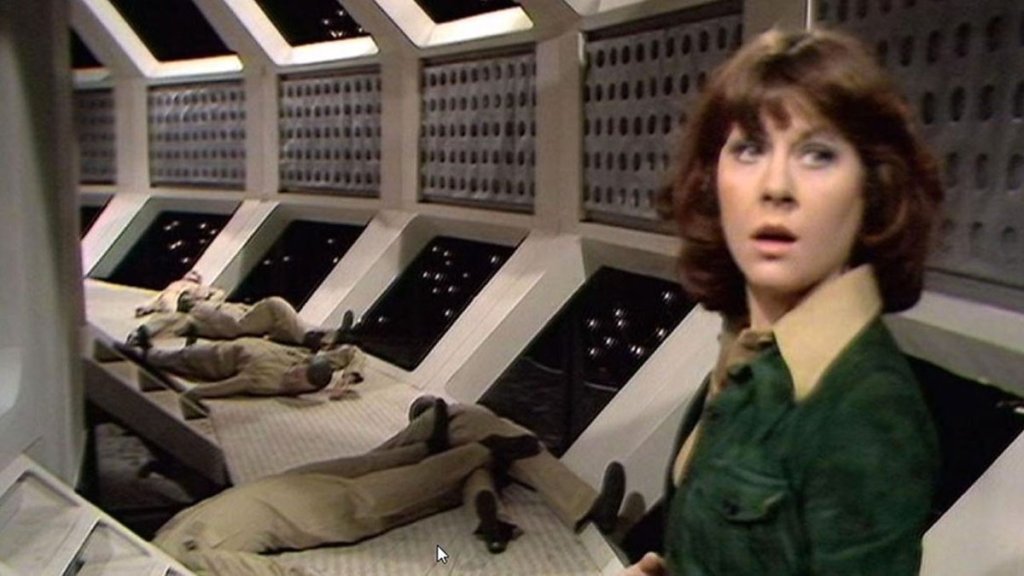
Sarah Jane’s departure in ‘The Hand of Fear’(written by Bob Baker and Dave Martin) comes out of the blue. An early outline for the story involved the Brigadier’s death, sacrificing himself to save the world. This was lost in development, and the story delayed while it was simplified. In the meantime Elisabeth Sladen asked to leave and for Sarah not to be the focus, married or killed off. Sarah was going to be killed off though, in a story called ‘The Lost Legion’. Script Editor Robert Holmes disliked the story, so a simplified version of ‘The Hand of Fear’returned to replace it with Holmes writing Sarah’s leaving scene. This was rewritten by Sladen and Tom Baker, with Holmes unavailable to do further rewrites. This is why Sarah’s departure is sudden. There’s no huge focus on her and then unrelated to the rest of the story the Doctor receives a summons to Gallifey where humans are not allowed (and given what happened last time he went he probably doesn’t want to take Sarah). What the scene does have is a strong sense of the unsaid to it, a sense of wistfulness akin to seeing someone else living in your childhood home.
18. Wilf

Essentially, if Bernard Cribbins is crying then I’m going to cry. It’s Bernard Cribbins, for god’s sake. He’s so lovable its actually weaponised against the audience, and while ‘The End of Time’ might not be to everyone’s tastes, Cribbins makes every scene he’s in work, so you’re thoroughly invested in Wilf and his responses. However, this is harks back to Susan’s departure. It’s undeniably moving that the Doctor is making this man cry with happiness… after lying to him (no mention of the safeguards he put in Donna’s mind, or that Donna didn’t want her memories wiped anyway) and who he emphasises is “not remotely important” before saying it would “be my honour” to save him. It’s said of the Doctor “words are his weapons” in ‘Hell Bent’, and the pattern emerging here is that they’re weapons he uses on his friends; when the Doctor says “I only take the best” this is not only another weapon, it’s asking the question: the best for what?
17. Bill Potts
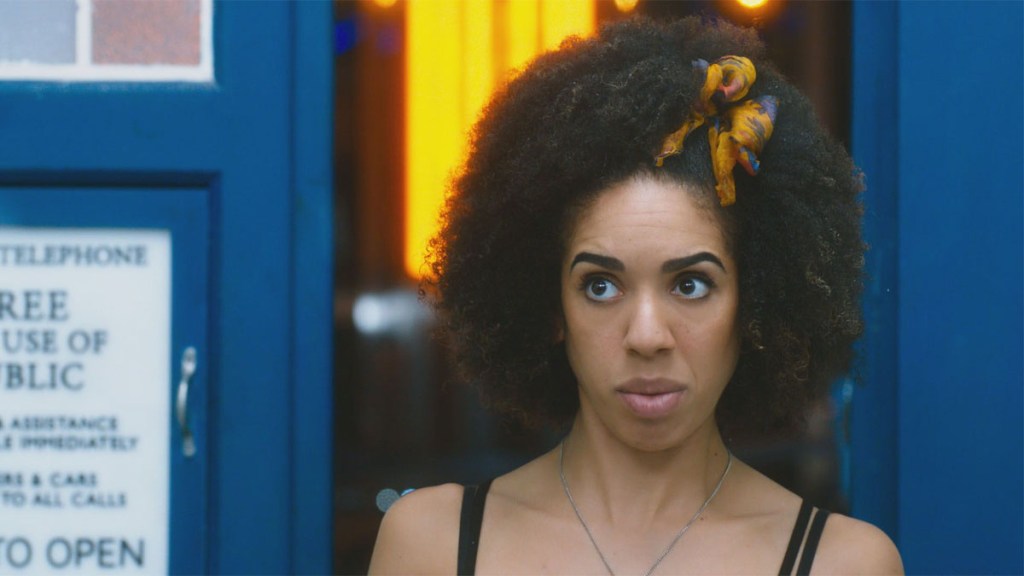
Potentially eternal life you say? A walking dead person? Maybe keep the dead body aspect of it and this idea has legs. Bill follows the Brigadier in becoming a Cyberman, and Clara in returning from the dead to travel the universe. The images of Cyber-Bill carrying the Doctor, the reaffirmation of who Bill is, the arrival of Heather: all of these are great.
Steven Moffat was right that the show hadn’t been diverse enough in its casting, but presumably no one behind the scenes understood that there are unintended connotations to a white man telling a black woman that she can’t be angry if she wants to be accepted – as happens to Bill in ‘The Doctor Falls’ – or that Clara got a gore-free death compared to the lingering shots of Bill’s gunshot wound. There’s also ambiguity in ‘Twice Upon a Time’as to when Bill dies – in that episode she is represented by an avatar taken from a moment near death, but given everything that’s happened to Bill this could be tomorrow or in a million years’ time – so overall this one has some extreme highs and lows.
16. Romana and K9
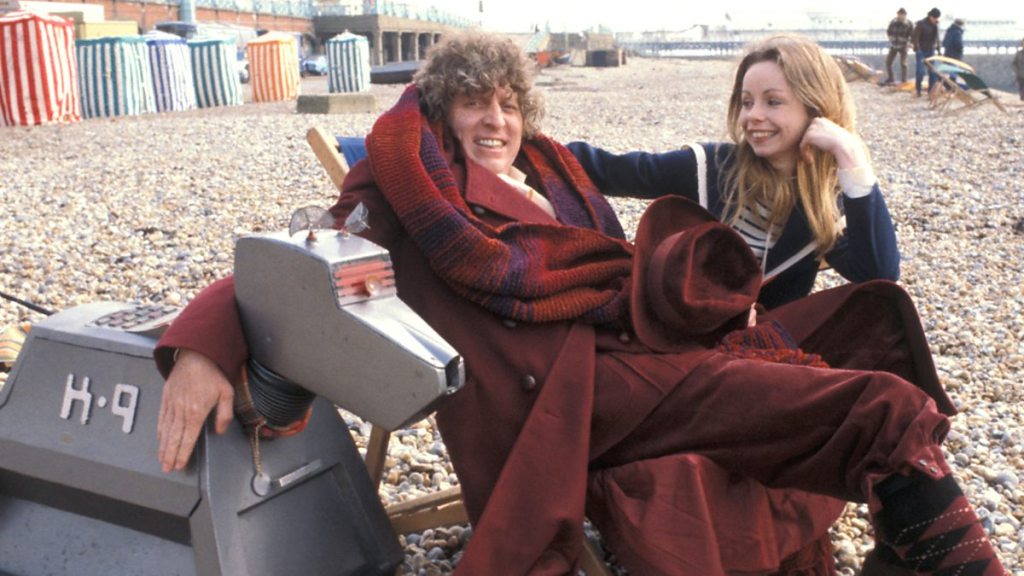
After Mary Tamm left the show, feeling similarly to Louise Jameson that despite a strong start her character was reverting to the stock companion figure (a damsel in distress, tripping ankles, screaming for help to advance the plot that’s being explained to them) Romana regenerated with Lalla Ward taking over the role. Ward left the show as new producer John Nathan-Turner came on board, and while Romana’s departure was foreshadowed well in advance, Nathan-Turner didn’t want any soap opera elements creeping into Doctor Who, and so Romana’s farewell scene was understated and rushed against Ward’s wishes. Otherwise it’s a good exit for Romana, who refuses a summons to Gallifrey and, finding herself in another dimension, decides to go off on her own journey after her travels with the Doctor.
K9 goes with her because John Nathan-Turner hated K9. Compared to ‘School Reunion’ this is just completely dismissive, but there is at least a coda: another scene at the end of ‘Warriors’ Gate’ where K9 and Romana face their future together with optimism, and Adric asks the Doctor if Romana will be alright: “Alright? She’ll be superb.”
15. Susan Foreman
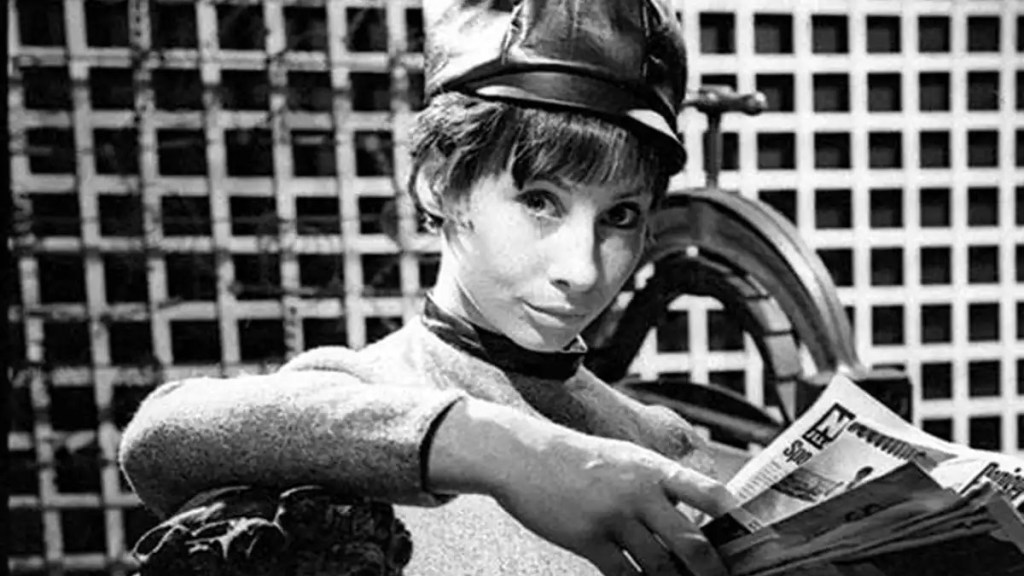
The first companion departure, and something of a template. Susan falls in love and stays behind. Actress Carole Ann Ford left as she was unsatisfied by Susan’s lack of development.
It’s the Doctor’s decision to leave Susan, his granddaughter, behind. He locks the doors on her, believing that she stands a better chance of happiness staying on Earth rebuilding after a Dalek invasion. William Hartnell didn’t want Ford to leave and channels that into his performance. A clip of this scene was used to represent Hartnell at the beginning of the twentieth anniversary special ‘The Five Doctors’, and with Susan’s fate unconfirmed after The Time War his line ‘One day I shall come back’ lands even heavier: we know he never did.
No wonder he never comes back for anybody else.
14. Captain Jack
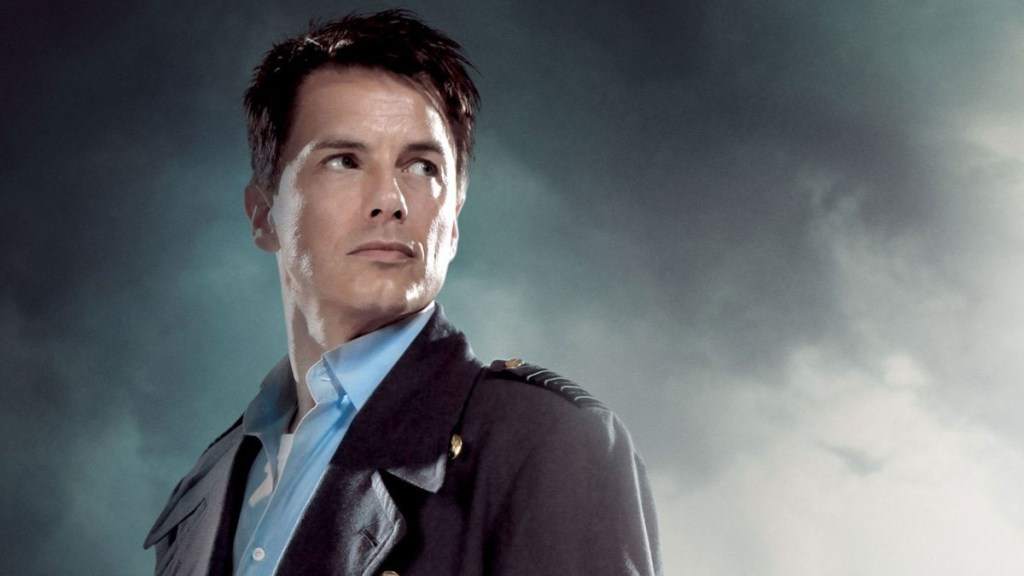
‘The Parting of the Ways’ is Jack’s departure story as it’s his last as a regular companion before moving to Torchwood.
Torchwood was not announced until after Series 1 of Doctor Who, and so when it became clear that Jack – with his cheesy grin and action hero posturing – was going to die, it was unexpected. There’s a sense of inevitability about the Daleks killing him when everyone else is dead but, because this was a new series, it was never clear how far it would go. Maybe there’d be a last-minute reprieve. Ultimately there was, but as far as self-contained character arcs go Jack’s journey from con-man to sacrificial hero works, and if it had ended there, it’d have been on a high.
13. Adelaide Brooke
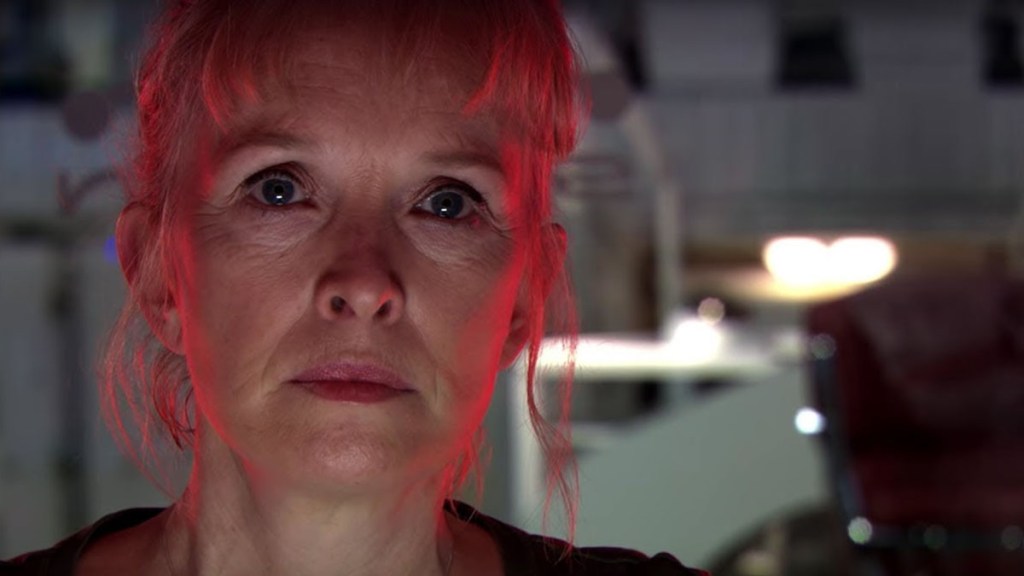
In Base Under Siege stories we have the stock character of a distrusting commander who doesn’t get along with the Doctor. A fun idea in ‘The Waters of Mars’ is ‘Hey, what if they were the companion for one episode?’
One of the less fun but still powerful ideas is also that the Doctor’s behaviour be so unnerving that this stock character would kill themselves in response. So here we have someone standing up to the Doctor as he states the laws of time “are mine, and they will obey me!” What’s interesting is that this is not dissimilar to the standard companion departure, but operating in the epic register rather than a more intimate one. The Doctor has previous on saying that companions have to leave and not giving them a choice, but here the controlling behaviour is scaled upwards to time itself. Possibly the show was not ready to explore this explicitly in a smaller scale just yet.
12. Grace Holloway
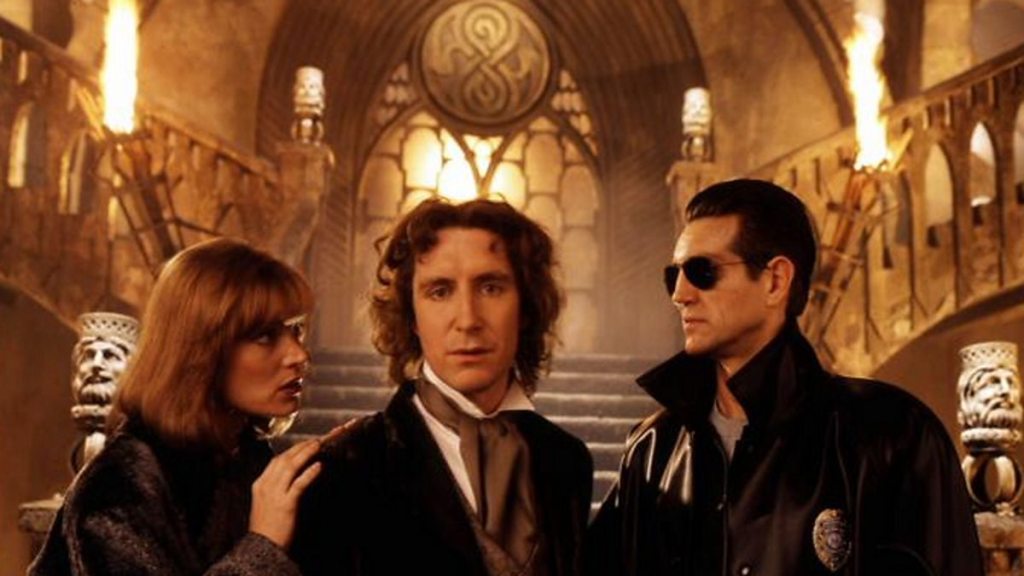
Sneaking in unnoticed is the fact that Grace Holloway, the one-off companion for the 1996 TV Movie, ends the film by kissing the Doctor at midnight under the fireworks but refusing to go with him because her experiences have given her renewed self-confidence. Grace is that rarest of things – a Doctor Who companion who gets to leave on her own terms without the Doctor being a dick about it.
11. Ian Chesterton
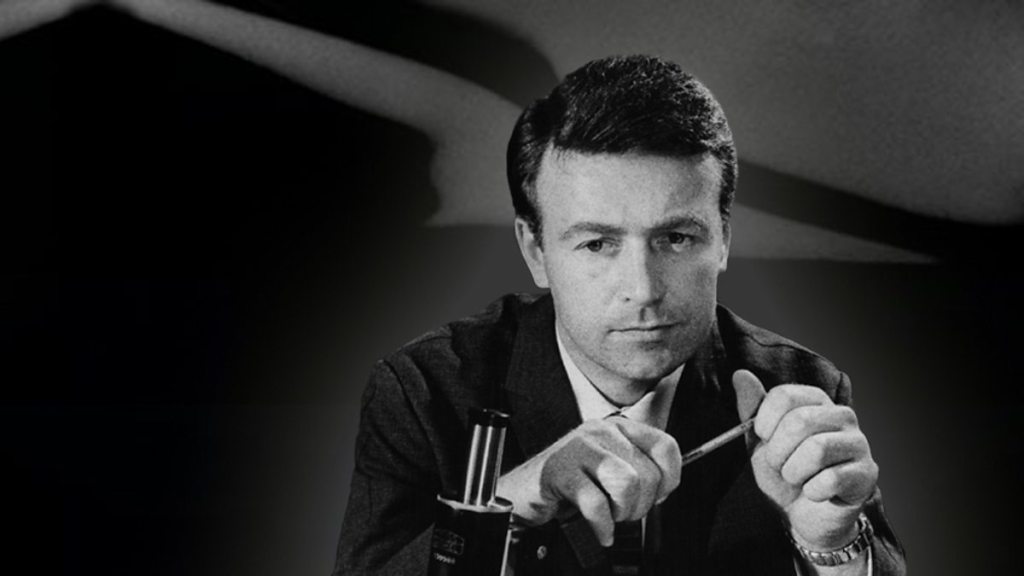
Ian and Barbara are the first humans in Doctor Who to explore the universe in the TARDIS, taken away by force when the Doctor kidnaps them. Initially they want to return home, but this desire fades. However, when they’re presented with a chance they take it. As a contrast to Susan’s departure, Ian and Barbara’s departure is joyful as it turns out that you cantravel with the Doctor and leave on your own terms as richer, fuller people.
10. Rose Tyler
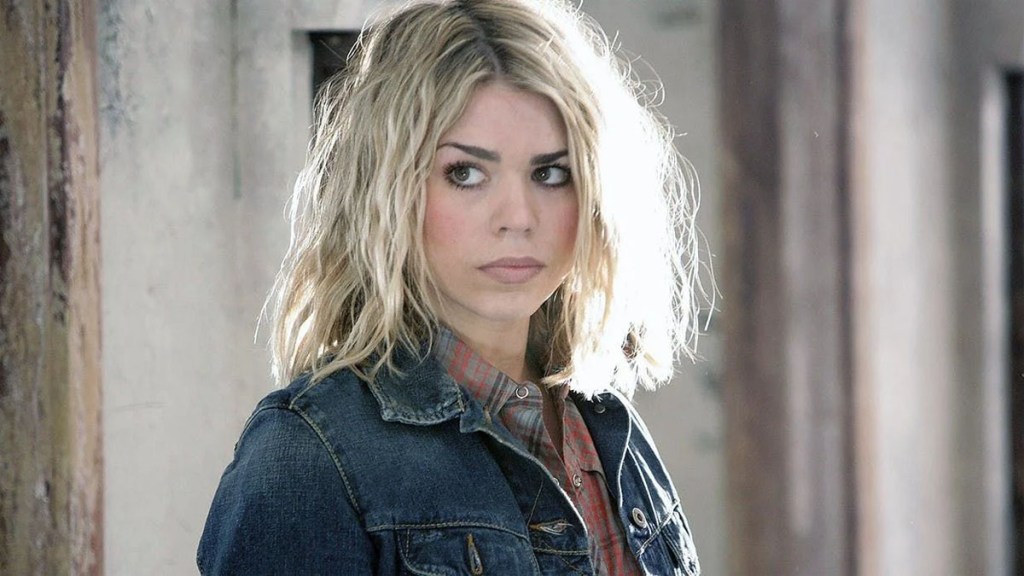
Rose and the Doctor. The Doctor and Rose. It’s easy to lose track – amidst the melodrama, epic gestures and various tensions – of the way Series 2 sets up Rose and the Doctor being torn apart almost straight away. They’re so wrapped up in how much fun they’re having that it stops them from noticing other people’s feelings. It becomes clear that had the Doctor and Rose done this, the Torchwood Institute wouldn’t exist, so Harriet Jones wouldn’t have had a weapon to fire at the Sycorax in the preceding Christmas episode. However, the show is also telling you that Rose and the Doctor being split up is a colossal tragedy; performances, visuals and music tell you this is incredibly sad while the stories are reminding you they’ve contributed to their own downfall.
This is a companion departure with the heartbreak turned up to 11, to the point where the pretty loud “Brought this on themselves” track can get lost in the mix. Here’s the beginnings of companions burning out rather than fading away.
There’s also the unfortunate business where Rose Tyler, the beloved character who helped bring Doctor Who back as a critical and popular success, rips holes in the universe to find the man she loves.
Said man takes her back to the place she had the worst time of her life, gives her a genocidal sex clone and then quietly leaves when she’s making out with it.
9. Ace
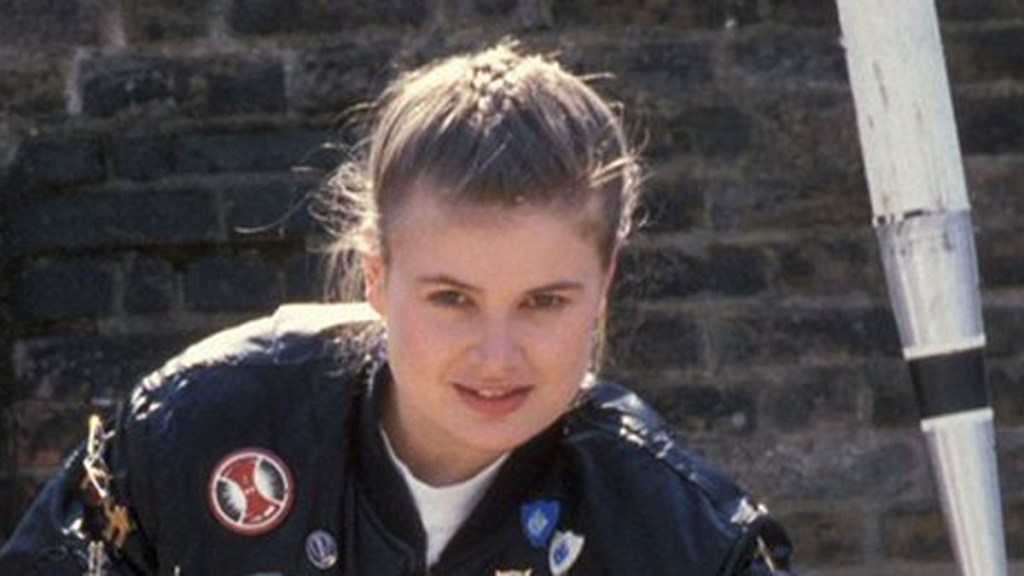
Bearing in mind that Ace has left Doctor Who in so many different canons over the years, it’s specifically her departure in ‘Survival’ that I’m taking as her final story. I’m heavily indebted to Una McCormack’s book on ‘The Curse of Fenric’ here, as it makes the very good point that for everything that could happen to Ace – whatever fates spin-off media has in store for her – there’s nothing quite as perfect for where Ace has reached at the end of Season 26 as the promise of further adventures, the possibility of joy rather than darkness, an ellipsis rather than a full stop.
8. Barbara
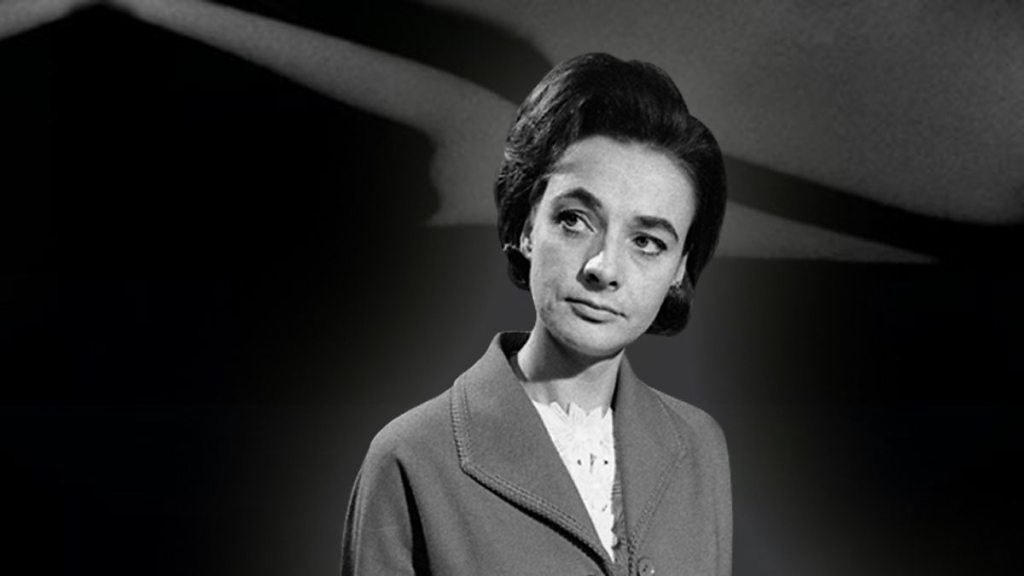
Why is Barbara’s departure better than Ian’s? Because:
In ‘An Unearthly Child’ the Doctor asks them “What is going to happen to you?”, the single most important question in the entire series. Firstly because that is half the format of Doctor Who, and secondly because the other half is the same question in reverse. If Barbara Wright doesn’t happen to Doctor Who, then Doctor Who is a short lived 1960s sci-fi show about a cantankerous old git who kidnapped some school teachers (Missing presumed wiped).
7. Zoe and 6. Jamie
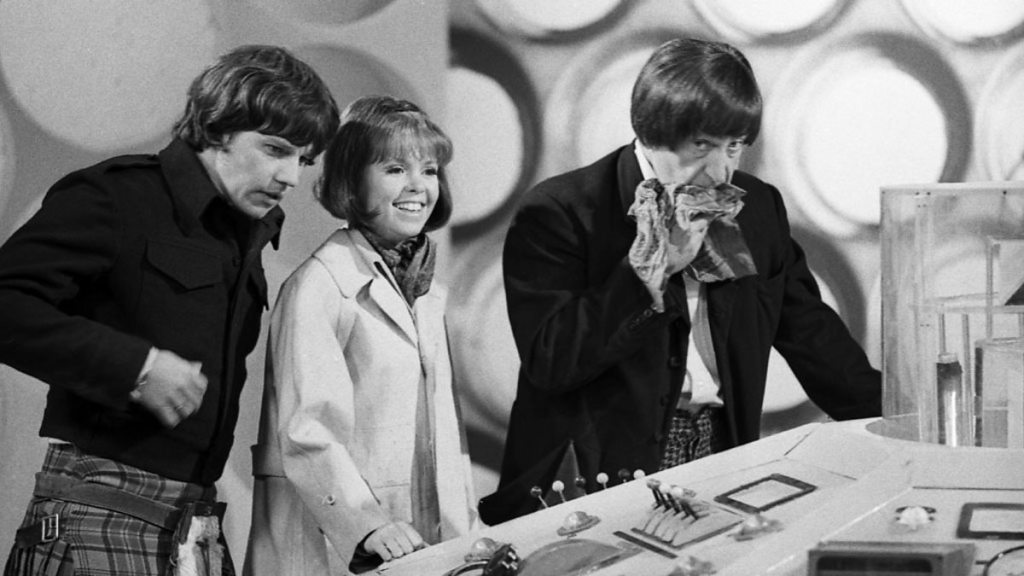
Zoe and Jamie both leave suddenly at the end of ‘The War Games’. Patrick Troughton was leaving and the actors decided to go with him, and that sense of an era ending bled into the fiction.
At the end of ‘The War Games’ the Time Lords are named and appear for the first time, represented by a group of solemn men in robes who wield immense and ineffable power. The Doctor is put on trial for stealing the TARDIS and interfering on other worlds. His companions are returned to a time after their first meeting with the Doctor, their memories of their travels erased. This isn’t built up to, but there’s a general sense of unease in the final few episodes and the Time Lords seem aloof enough to mete out this sort of punishment.
Jamie and Zoe try to escape with the Doctor, but when they’re recaptured he gives up. With Patrick Troughton’s Doctor this is especially shocking, and it’s only his melancholy resignation that convinces them to give up too. Zoe ends up back on a space station, and knows there’s something she can’t quite remember, but with Jamie – who has been with the Second Doctor for almost the entire incarnation – he ends up back at the aftermath of Culloden, charging a redcoat. In a kind touch, the redcoat turns and flees, suggesting Jamie might be alright in the aftermath of the battle.
Doctor Who wasn’t really huge on tearjerkers until 2005, but it was very, very good at quiet melancholy.
5. Martha Jones
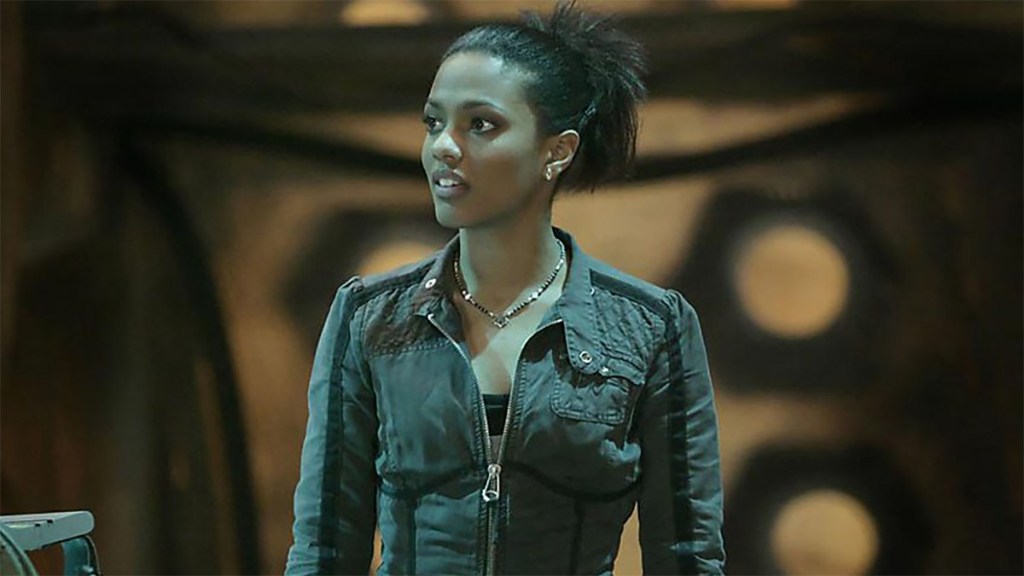
Martha is in love with the Doctor. The Doctor spends the entire series pining for Rose and being oblivious to this fact.
Martha Jones puts up with a lot, looking after the Doctor while in his human John Smith guise and having to restrain herself while being continually patronised, racially abused and treated like an idiot. She then spends a year travelling the Earth avoiding capture as the Master enslaves and murders the population, holding Martha’s family captive while she does this.
So frankly when Martha says she’s leaving and the Doctor still doesn’t understand why (“Is this going anywhere?”) it’s hugely cathartic for the audience and for someone who deserved better. Some people do get to choose when being with the Doctor stops, and it’s usually great when they do.
4. Jo Grant
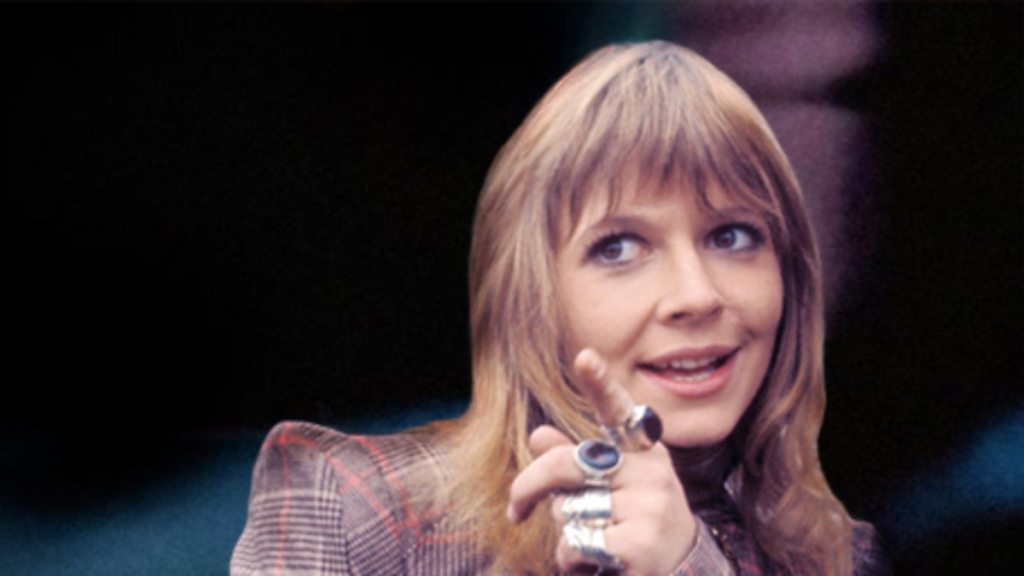
However muddled the reasoning behind Jo Grant’s existence, the casting was inspired. Essentially a remix of Jamie (which suggests that Jo and Liz could have worked if Jamie and Zoe did), Jo Grant wasn’t the brightest but wasn’t stupid, and was incredibly loyal and brave.
With the Doctor’s paternal streak fully activated, the production team decided that Jo falling in love and telling the Doctor “he reminds me of a sort of younger you” would be exactly what the Doctor didn’t want to hear. In contrast to Victoria’s departure and the Doctor’s selflessness there, the Doctor doesn’t do what Mike Yates does when marriage is announced (looks upset and does his best to mask it) but instead quietly slips out and drives away by himself. The fact that he leaves in a way that suggests jealousy or loneliness is a huge change; now we see the Doctor closer to Susan’s position and he does not like it.
3. Tegan
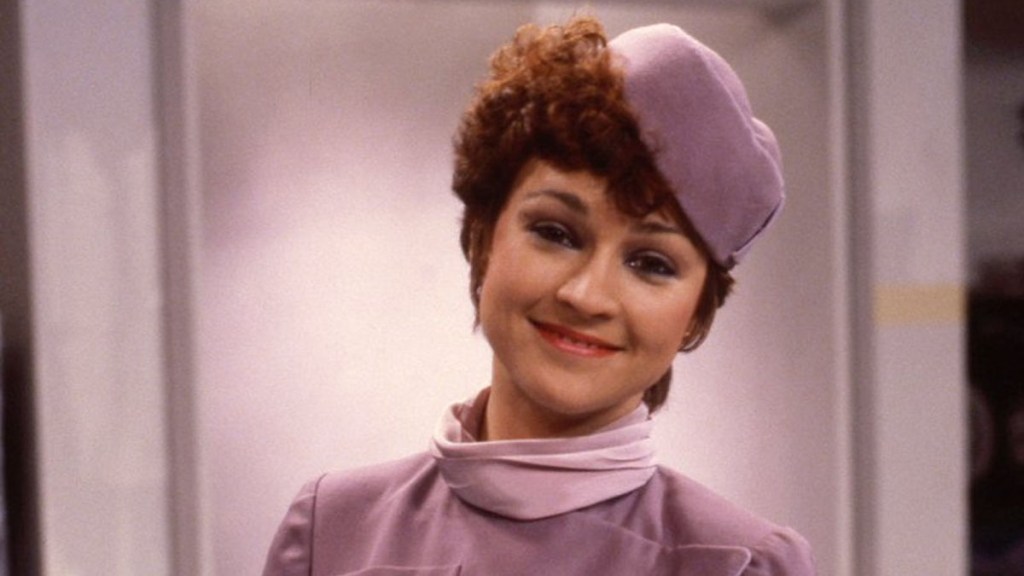
Coming at the end of ‘Resurrection of the Daleks’, where she’s seen a lot of people killed and the Doctor pick up a gun and announce that he’s going to kill Davros (who Tegan presumably hasn’t heard of), Tegan’s leaving scene is very close to being perfect.
Firstly there’s the line “It’s stopped being fun”, which begs the question of when it started being fun for her, but that’s ignorable. Secondly, and this is more about personal taste than an inconsistency in characterisation, there’s a case to be made for Less is More here. Tegan runs from the Doctor and Turlough as he begs her not to leave “like this”, which causes the Doctor to consider his actions before he and Turlough leave in the TARDIS. As it’s dematerialising, Tegan runs back in has one final line. For me it’s just a line too far, and Tegan being unable to say anything at all would have been more powerful, especially for the self-described “mouth on legs”.
However, that’s more window dressing rather than substance: the reasons for Tegan leaving are excellent: it’s a commentary on the stories and Doctor we’ve seen recently, and a plausible emotional response to them. It sets the Doctor on his way to ‘The Caves of Androzani’ where the show comes even closer than ever to paying off a sustained period of grimdark storytelling. Adric’s death might be more famous, but Tegan’s departure is much better writing from Eric Saward and deserves more plaudits for it.
2. Victoria
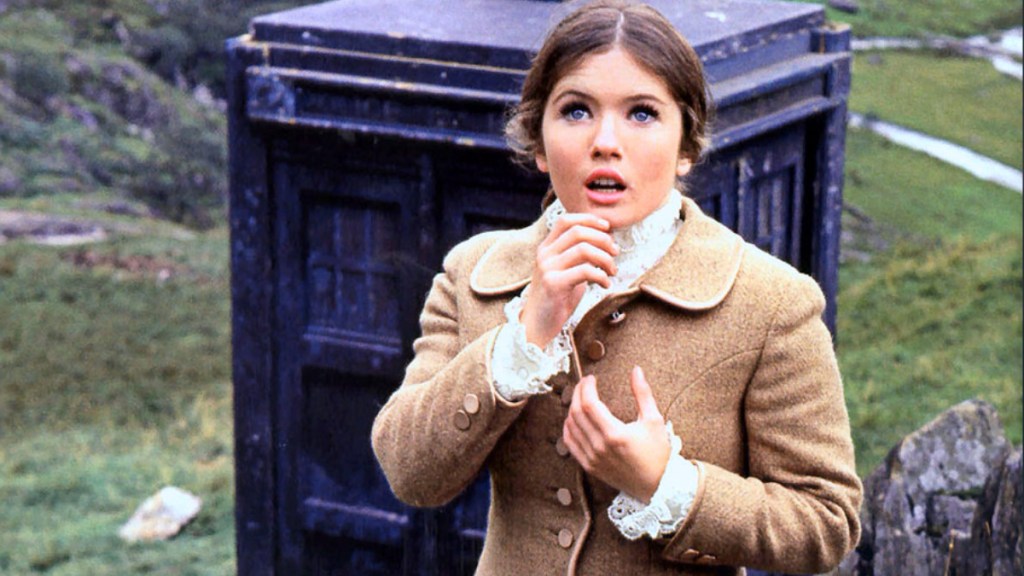
Actor Deborah Watling wanted to leave, and so Victoria goes in ‘Fury from the Deep’. Here the character has a plausible response to screaming at monsters and getting into trouble: she leaves. She says that she’s having a miserable time screaming and getting into trouble, but isn’t sure if she can go: her father died saving the Doctor, she’s an orphan out of her own time. The Doctor intervenes and suggests a family she can stay with.
Most importantly, the Doctor and Jamie stay an extra day to give her time to think it over, and the Doctor stresses that it must be her decision. On top of this, the final scene of the episode is the Doctor quietly trying to make Jamie feel better about her leaving. Rather than the usual one scene and gone deal we have something drawn out, stemming from character, full of warmth and empathy.
1. Clara Oswald
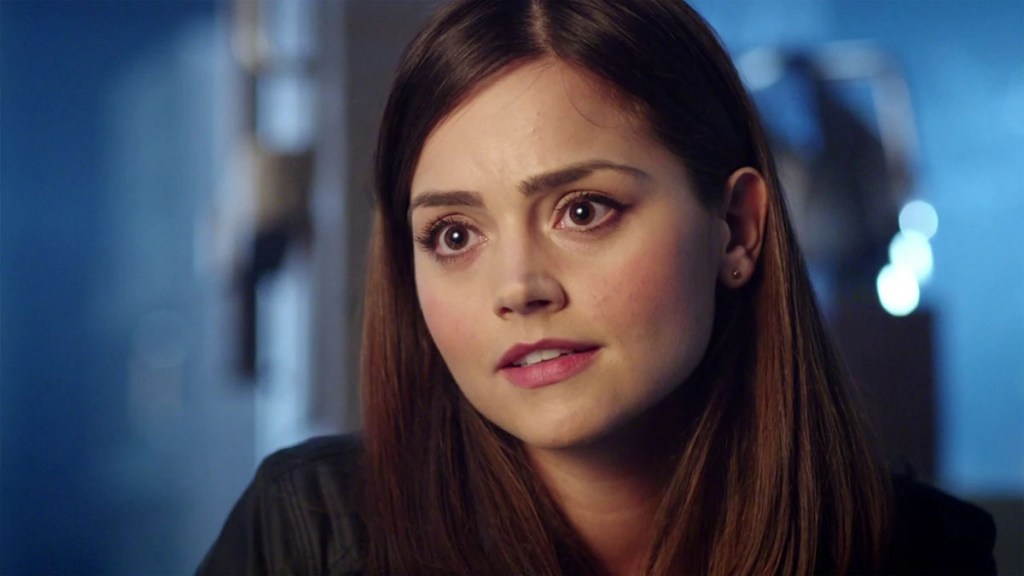
Potentially eternal life you say? A walking dead person? Maybe lose the dead body aspect of it and this idea has legs. ‘Hell Bent’ is a divisive episode (referential meta-commentary on Doctor Who isn’t what everyone was looking for from a season finale) and the ideas in it are incredibly pointed: the grieving Doctor overthrows Rassilon, shooting a potential ally to retrieve Clara from a moment before her death, and tries to wipe her mind to save her life, addressing the long-term trends of companion departures head on.
Rather than a Gallifreyan epic, this is focussed on one relationship and the shade it casts on the Doctor’s behaviour, all the while dancing in and around threads from other plotlines. The Doctor wanted Gallifrey back so badly, but now it’s simply a means to an end for him to bring Clara back.
Clara’s final story is often compared to Donna’s departure because of the mindwipe element and the idea of Clara being a Doctor-like figure in her own right – here realised rather than excised – but looking at this list you can see how it harks back all the way to Susan: the Doctor thinks he knows what is best and often gets it wrong, and what seems like extreme behaviour in this story is actually pretty standard. Here he gets properly called out on this behaviour, the show finally able to address this in an intimate rather than epic setting.

